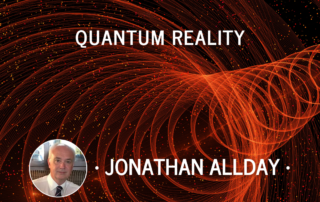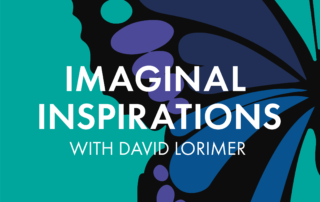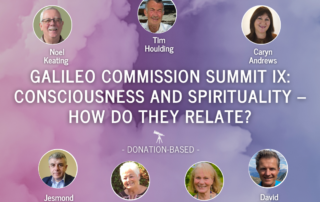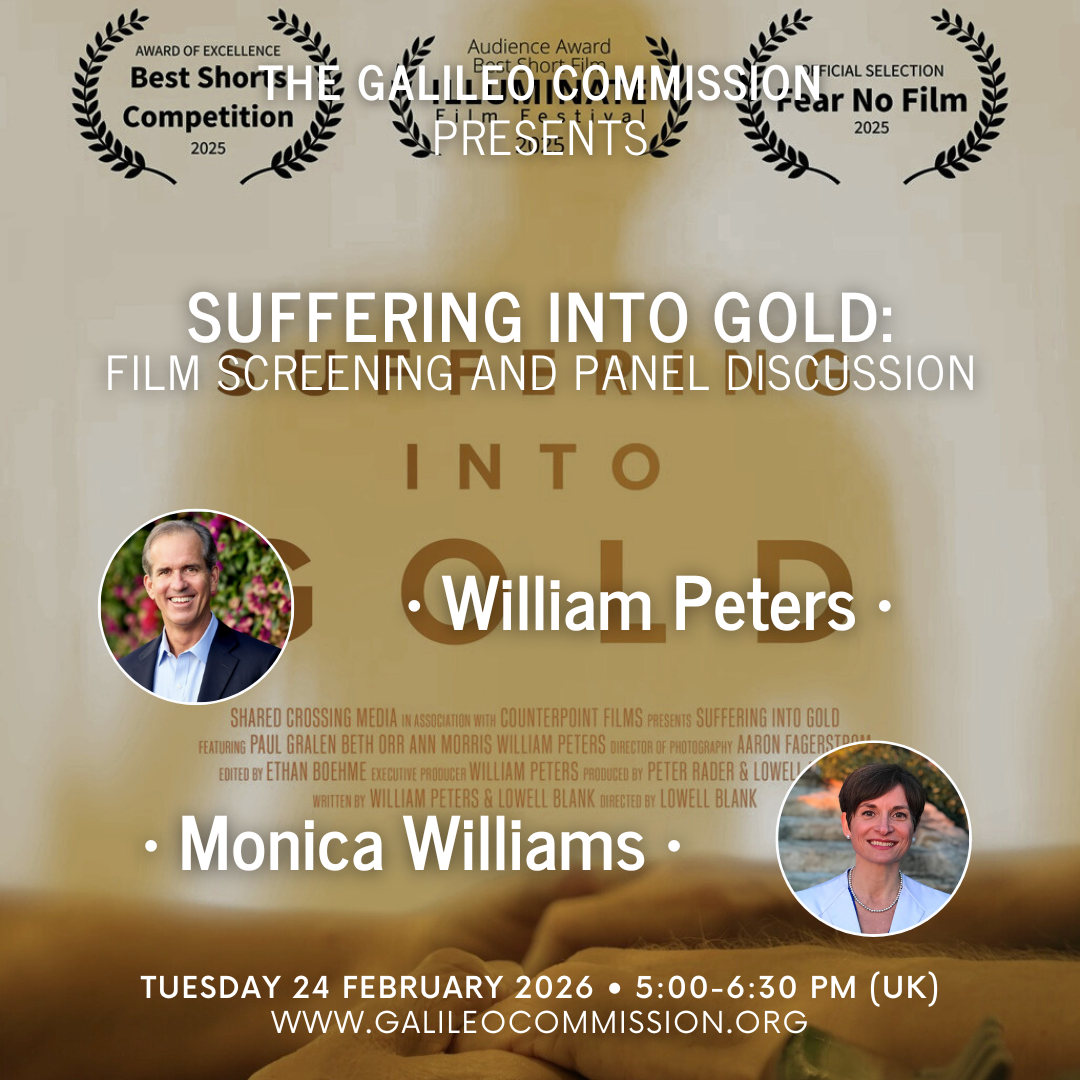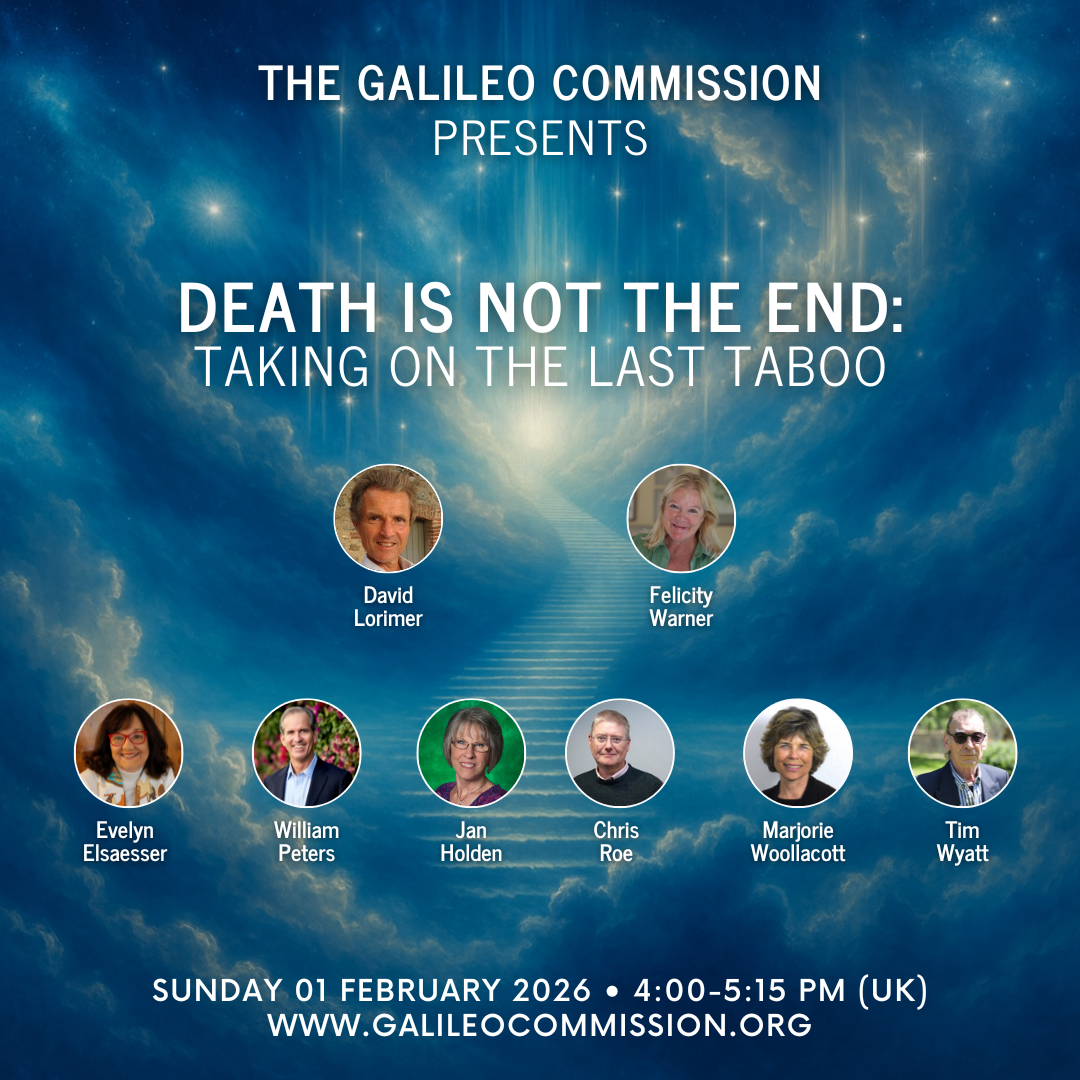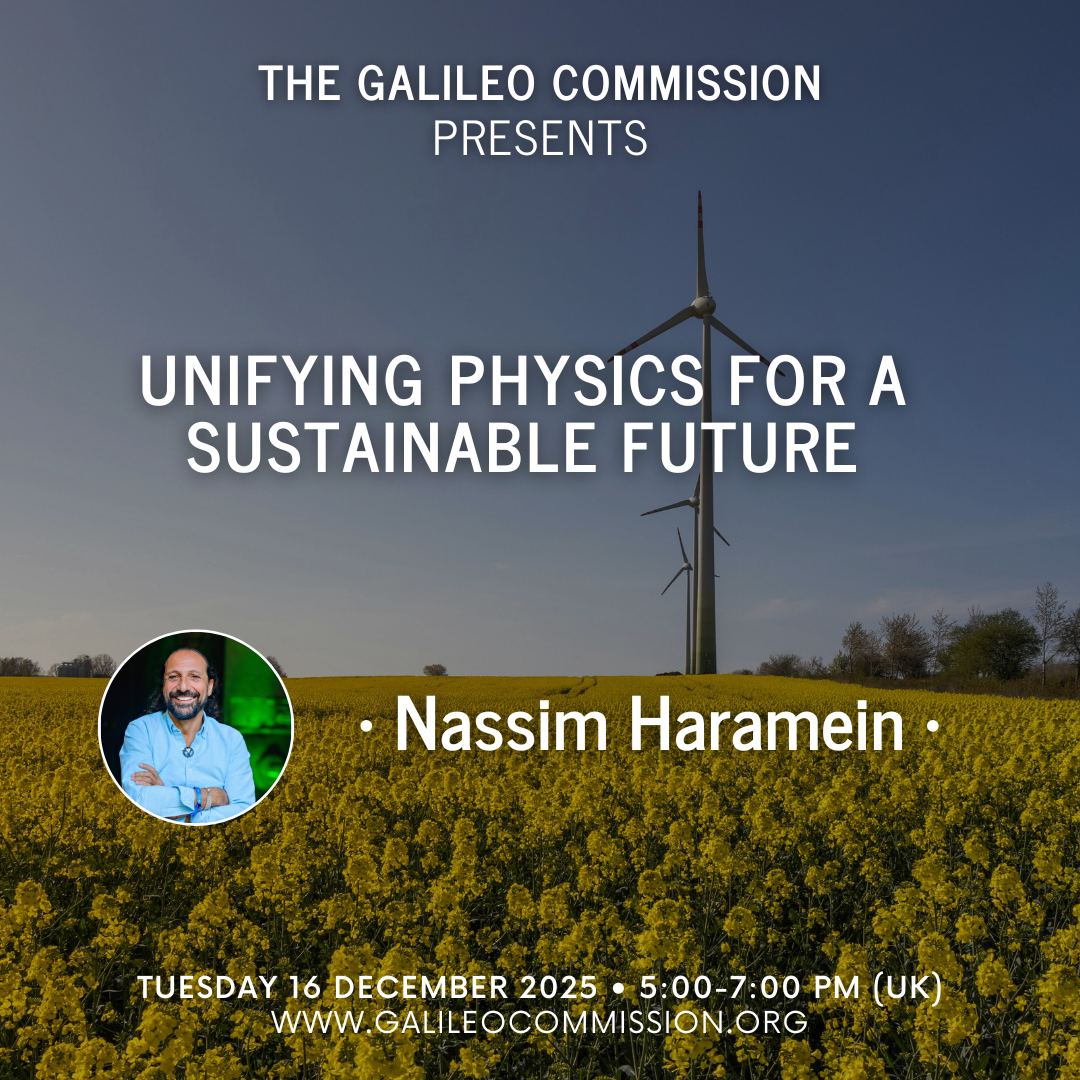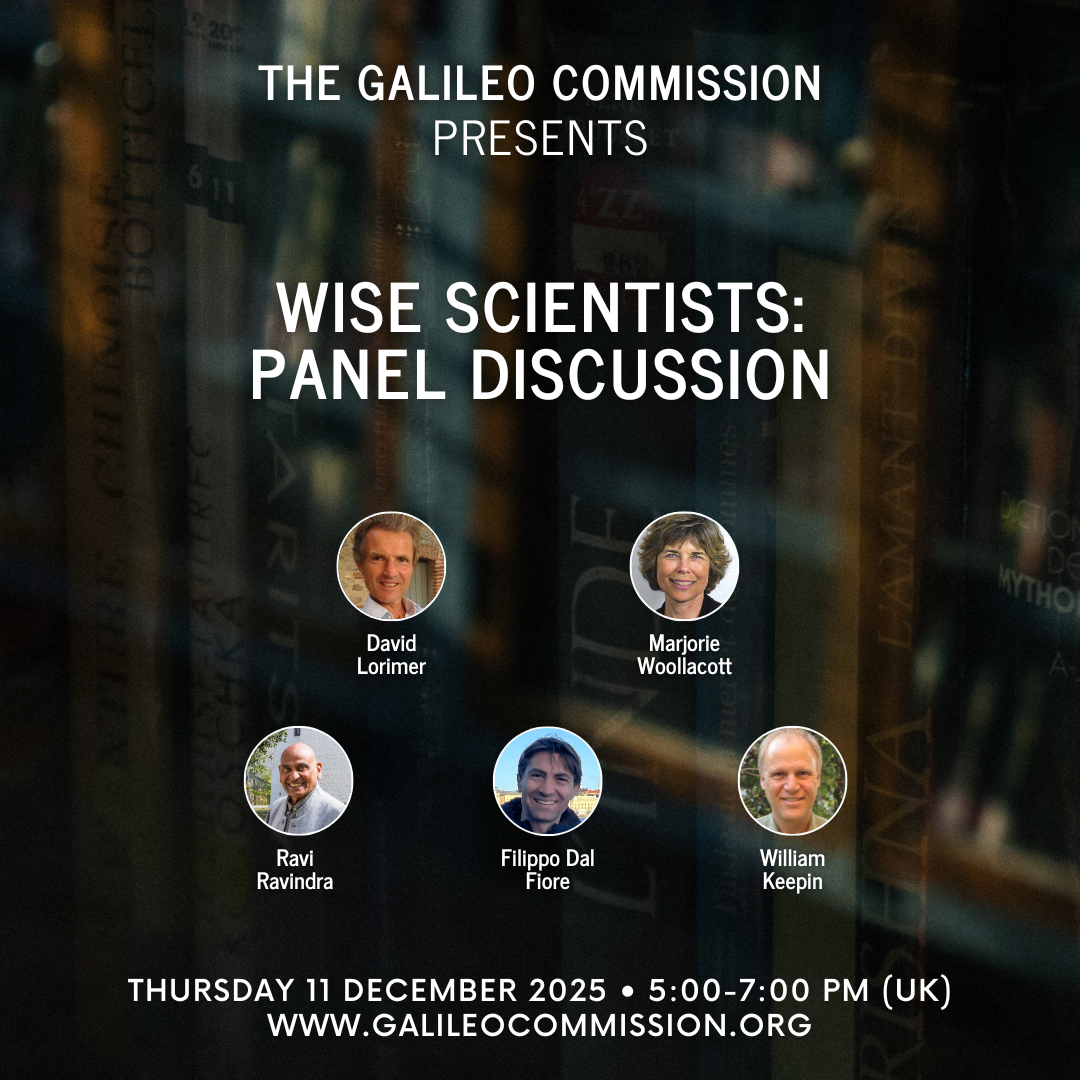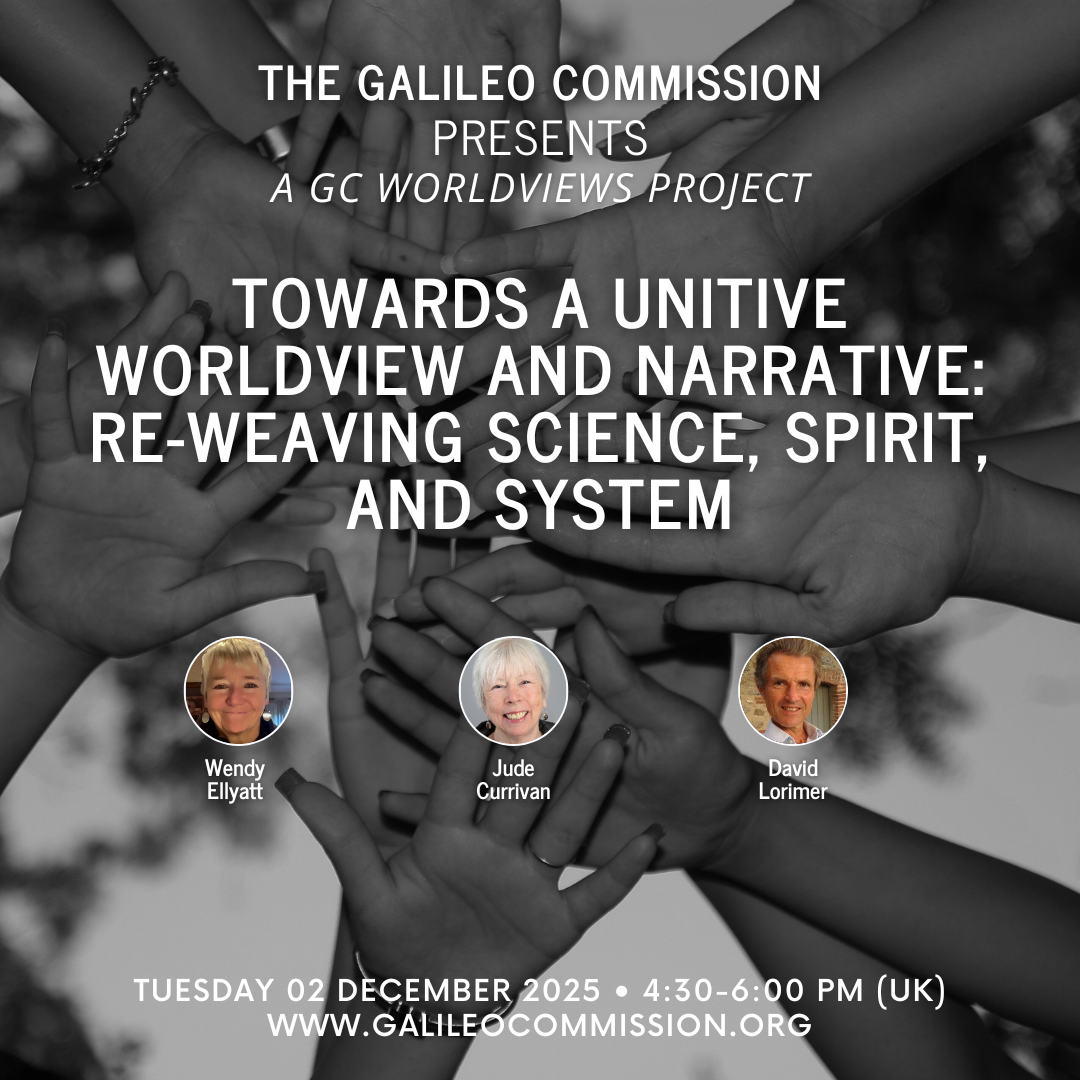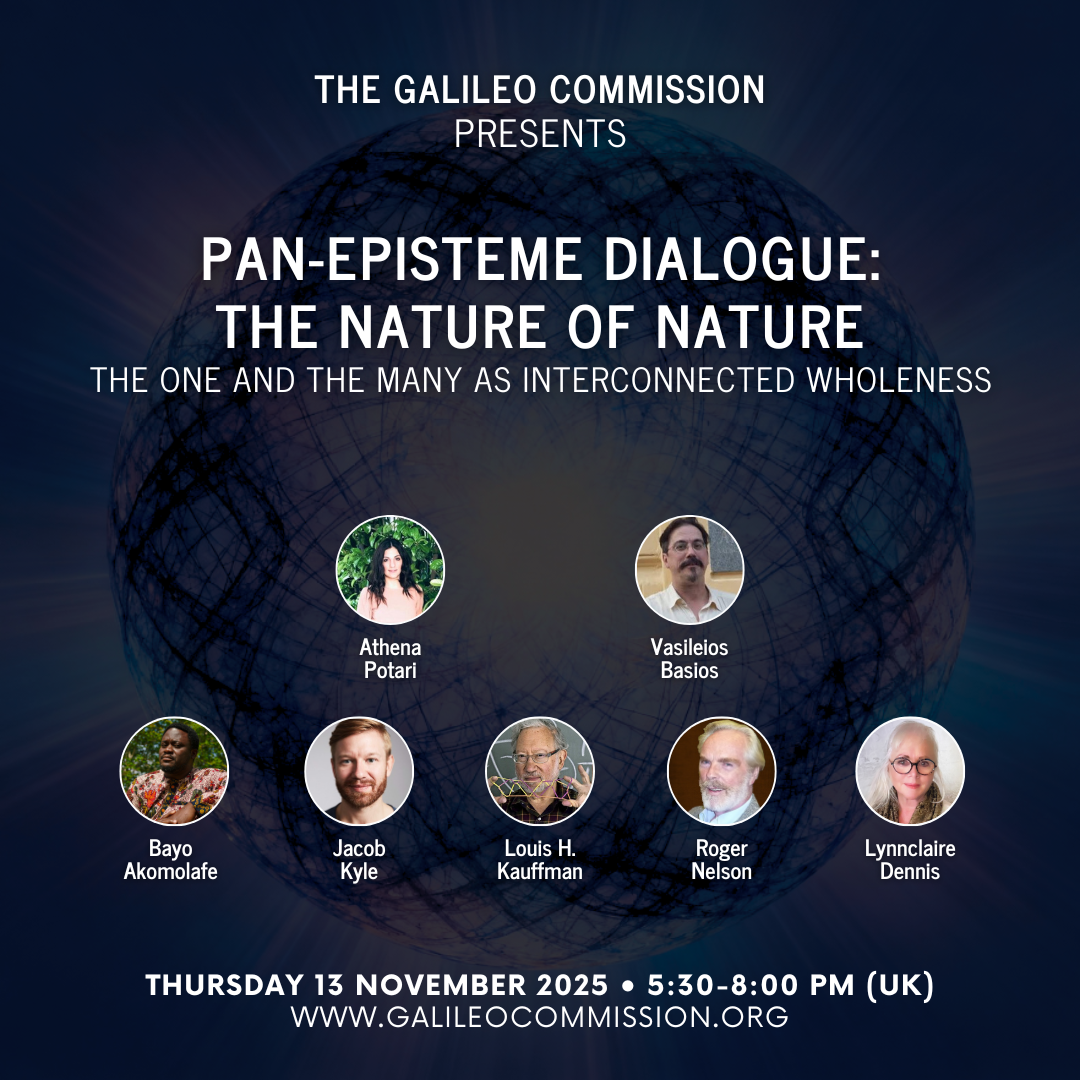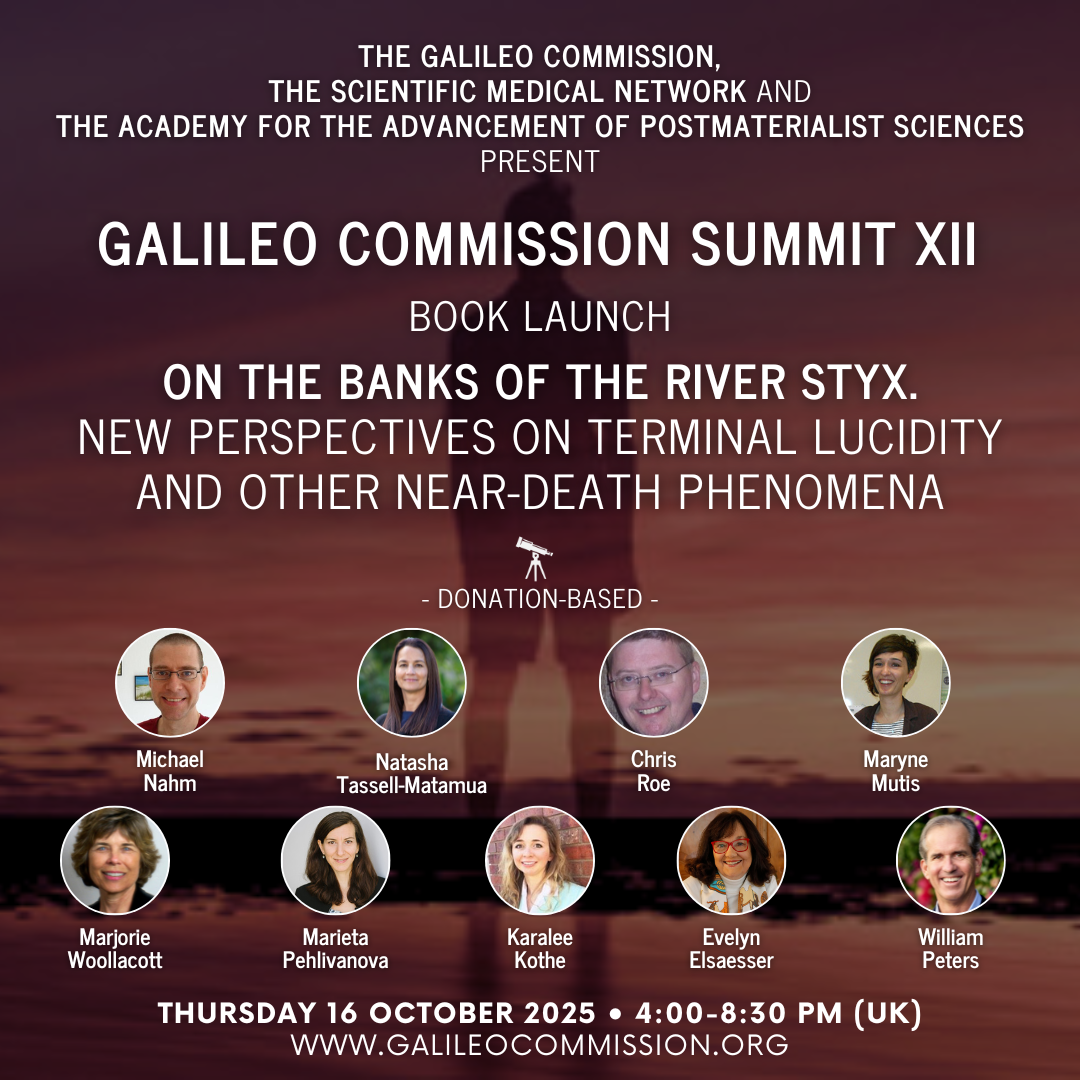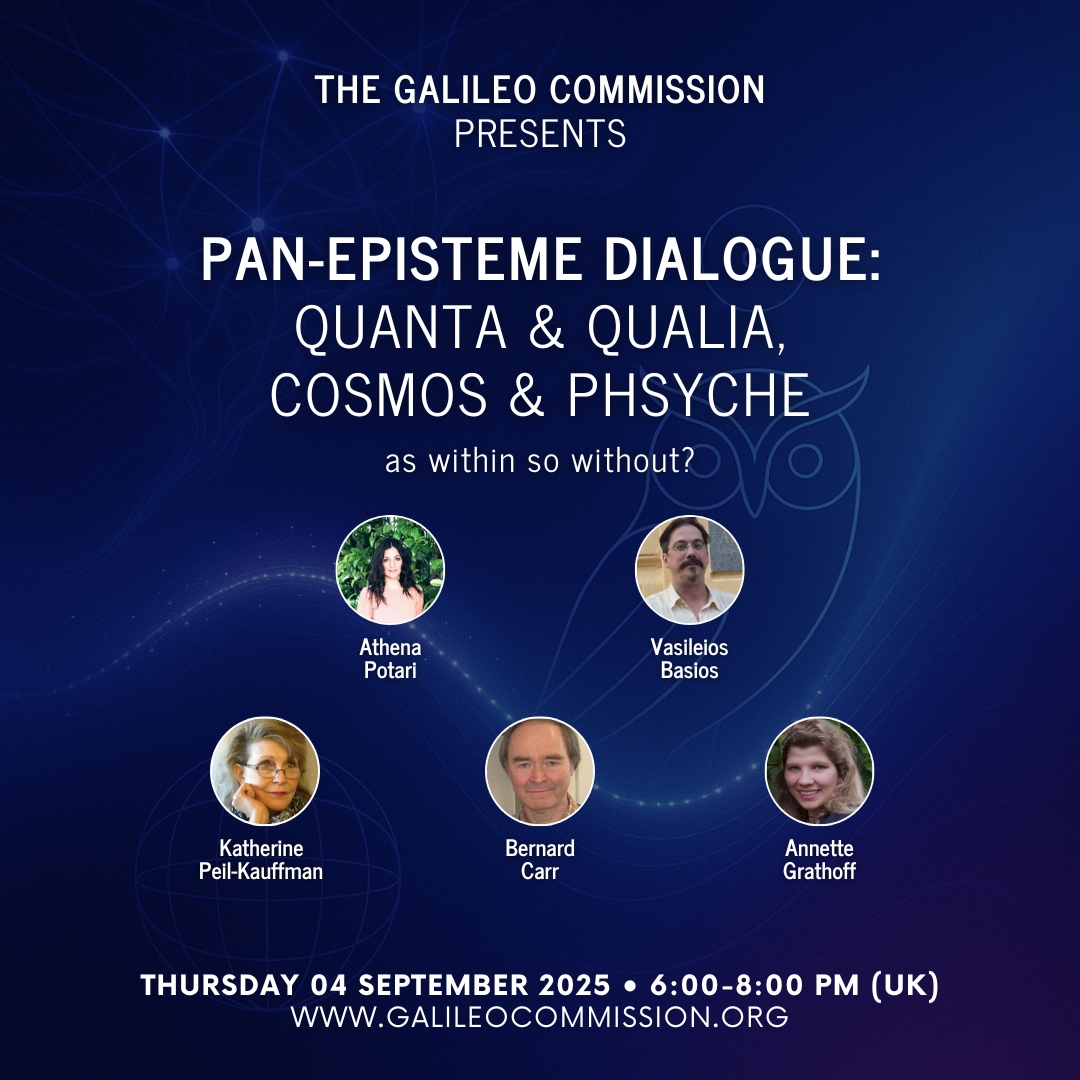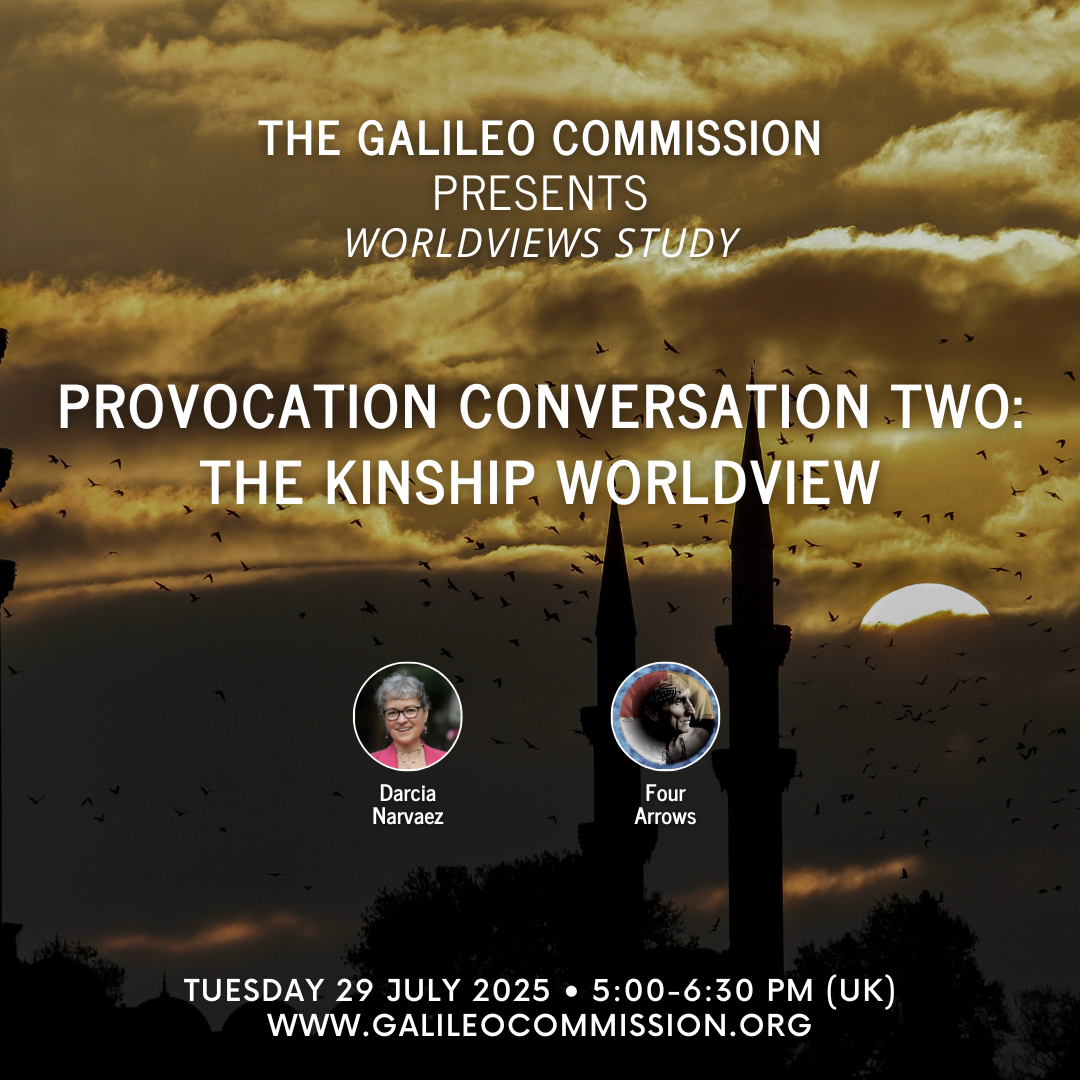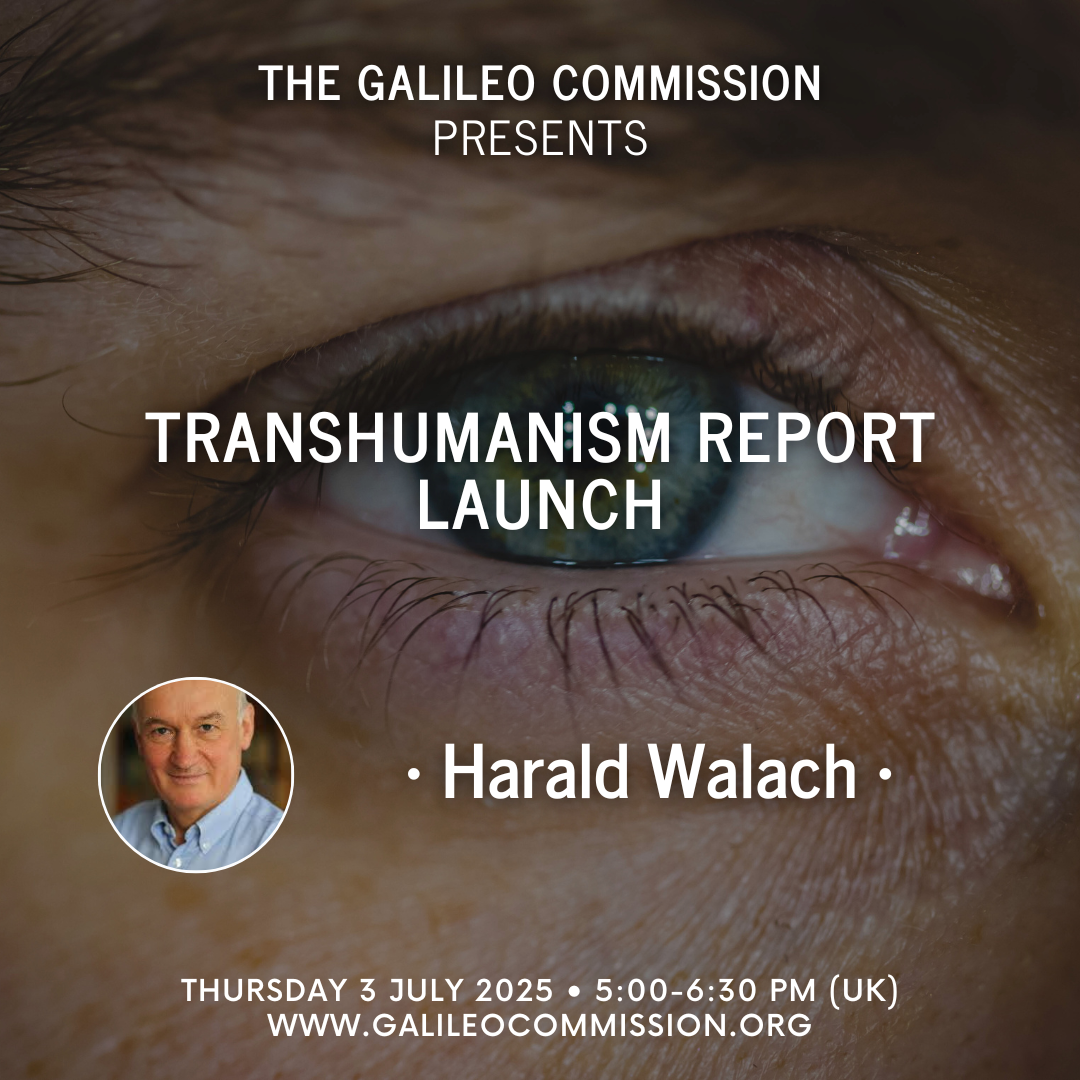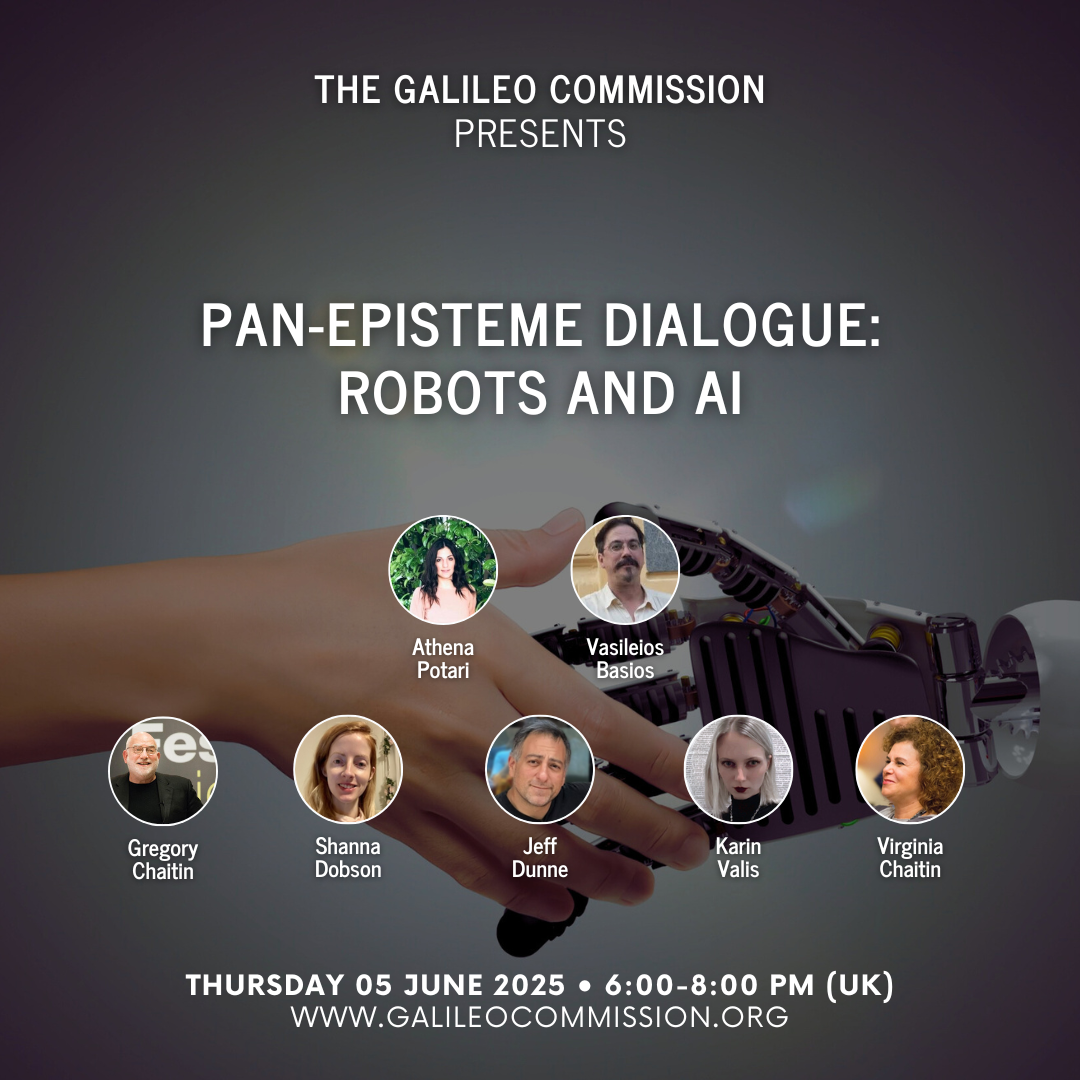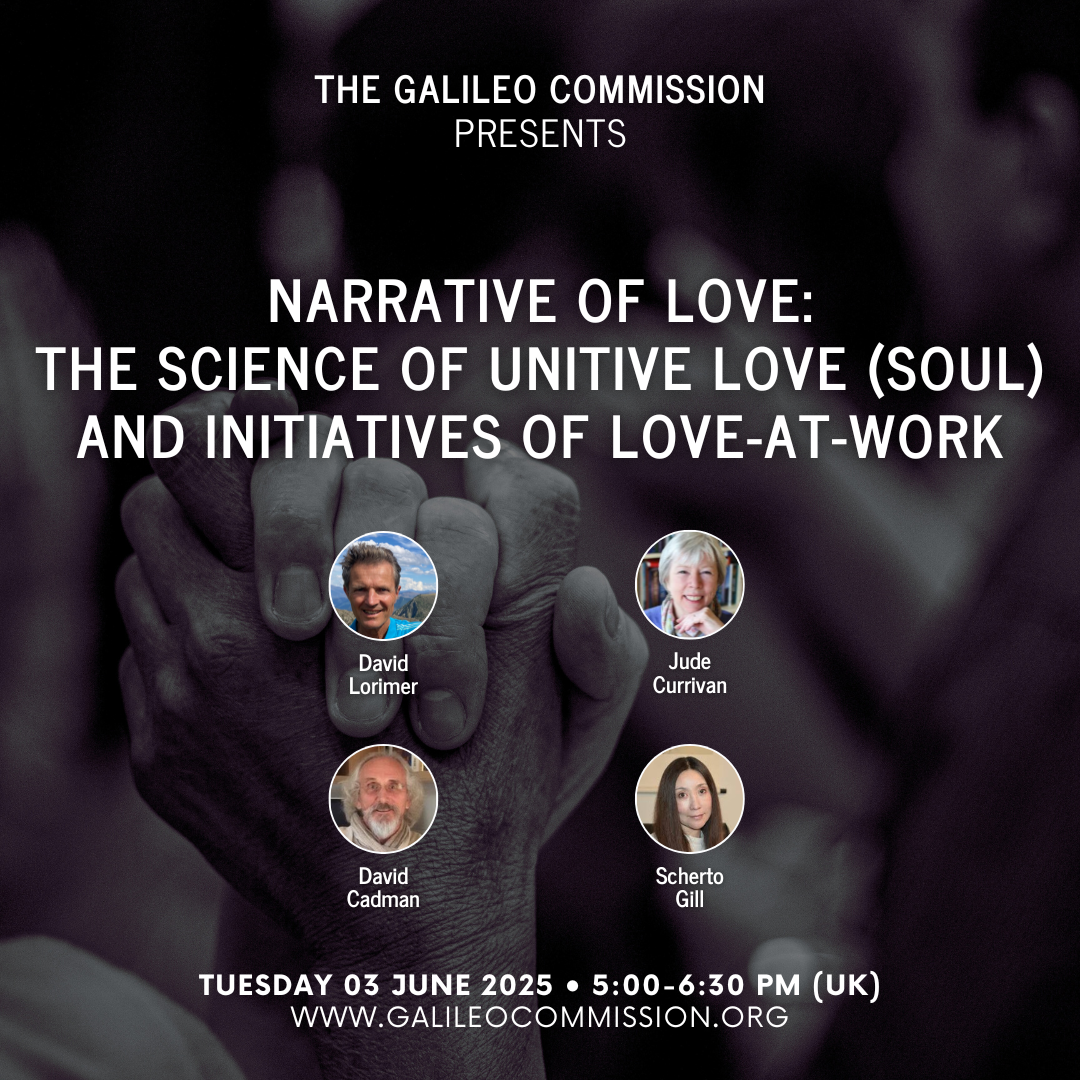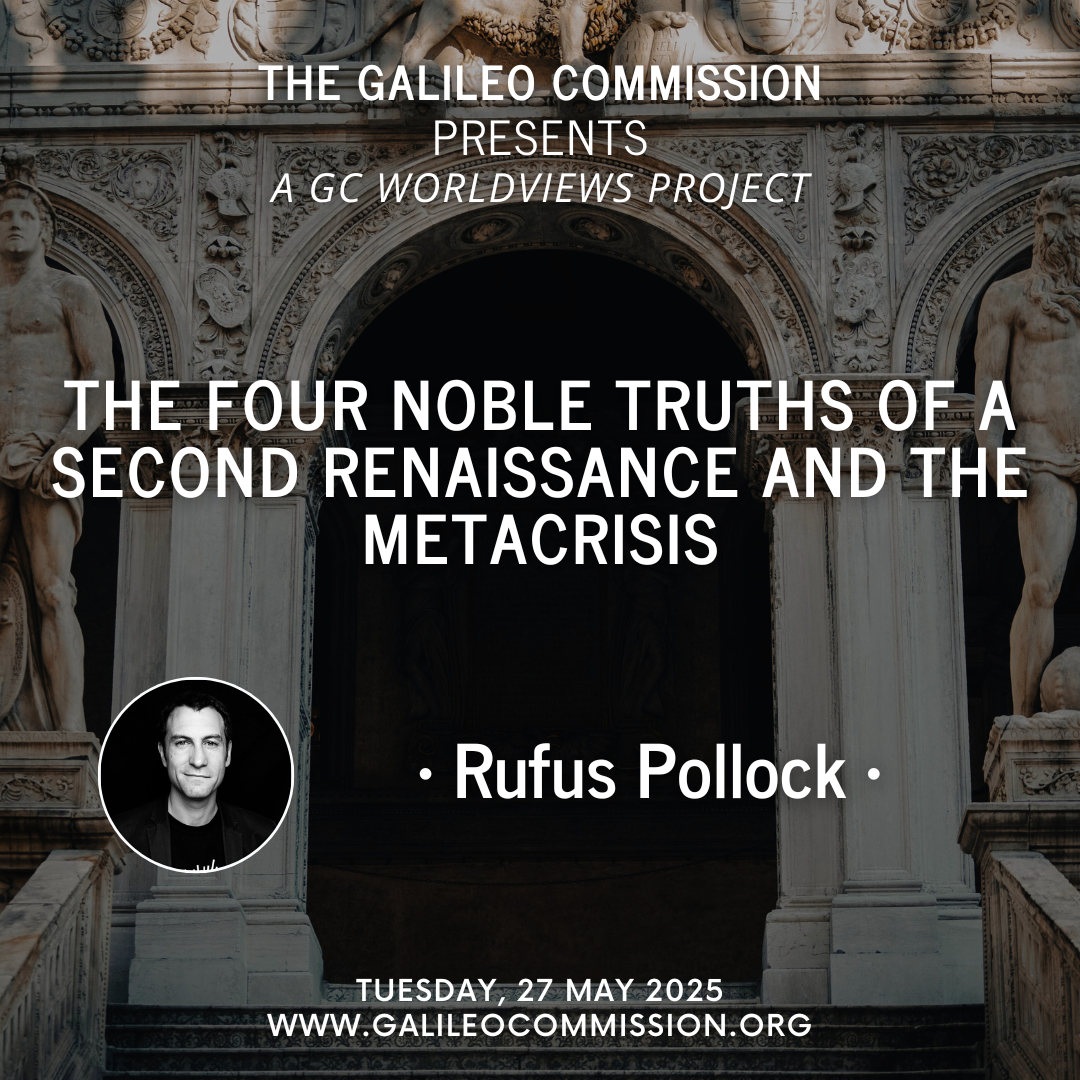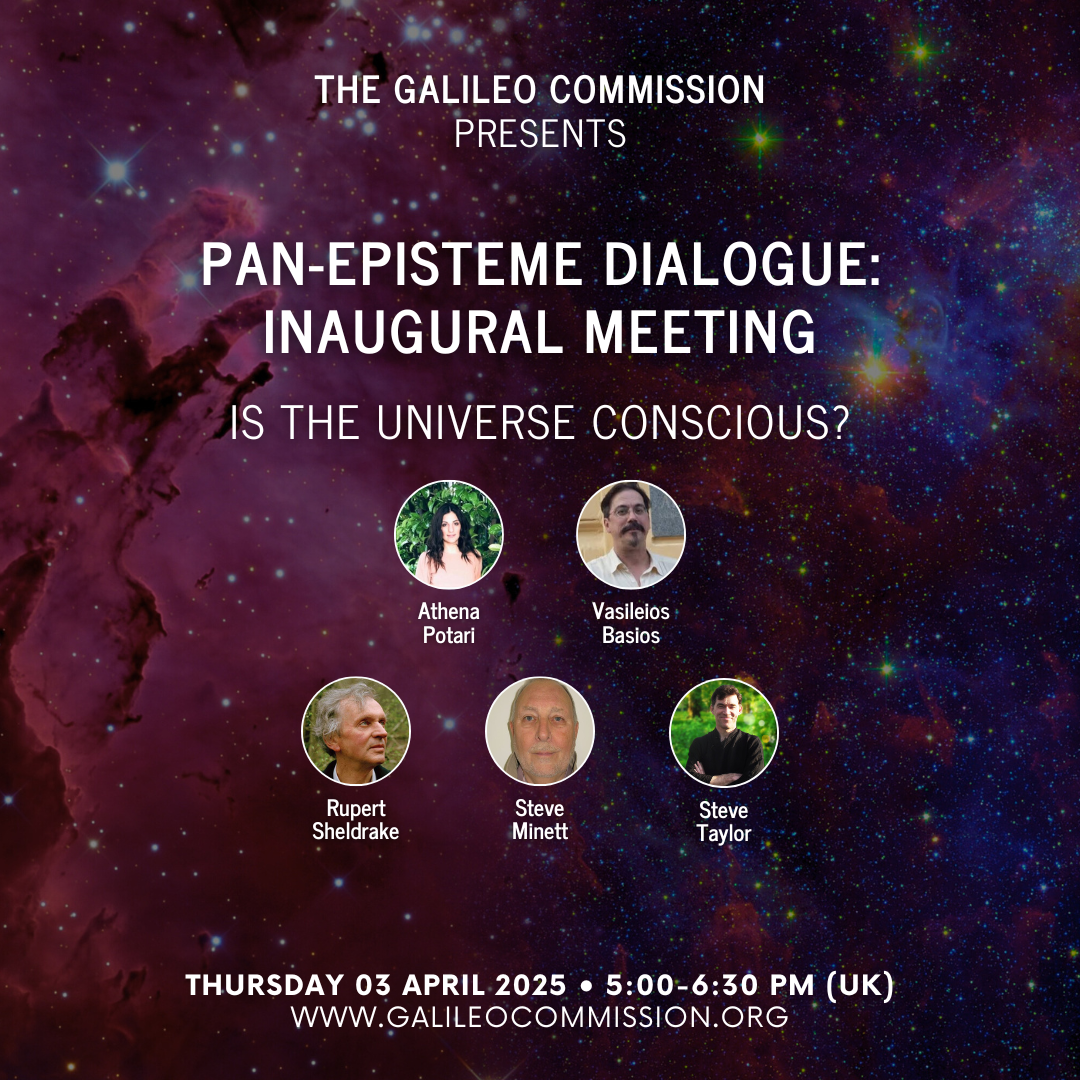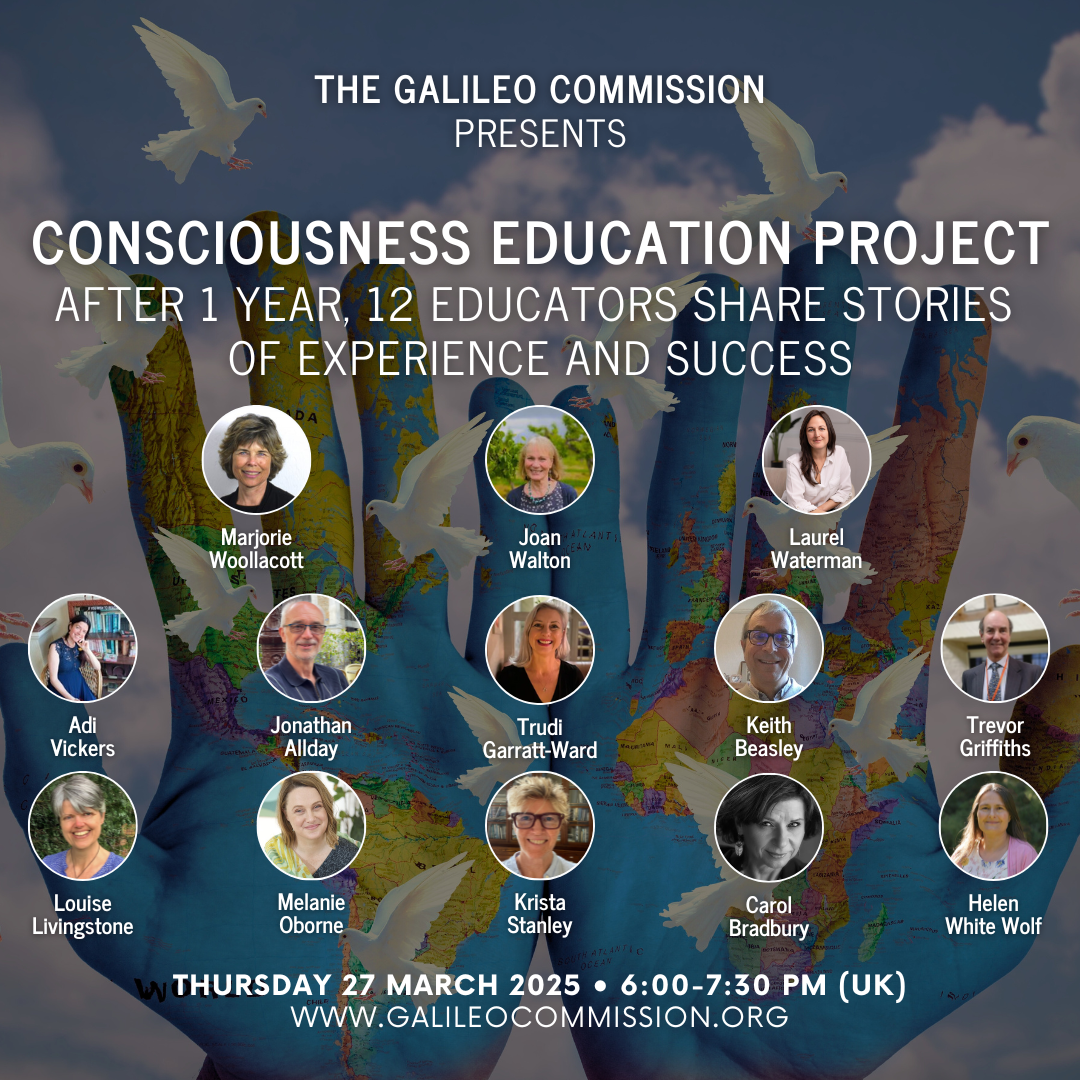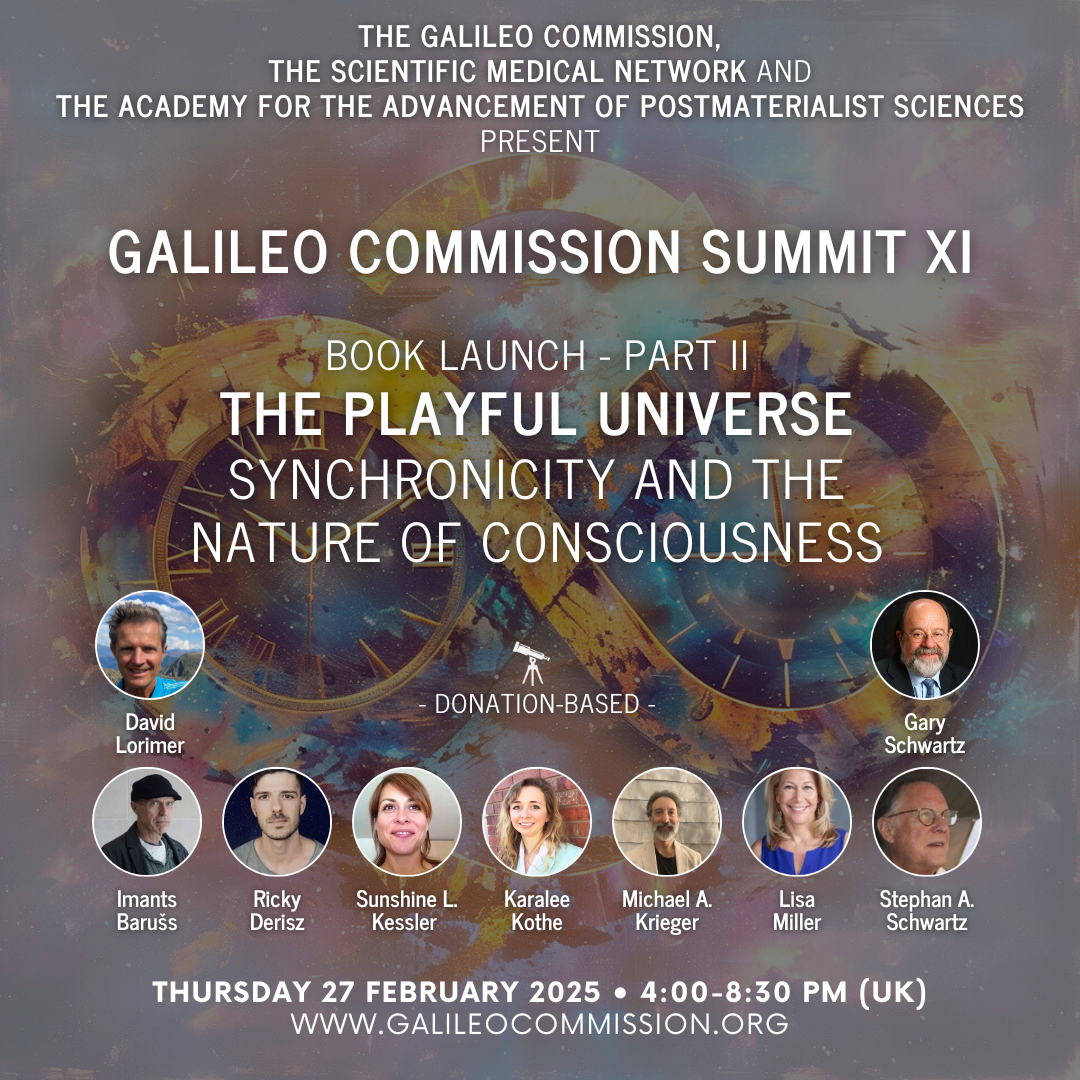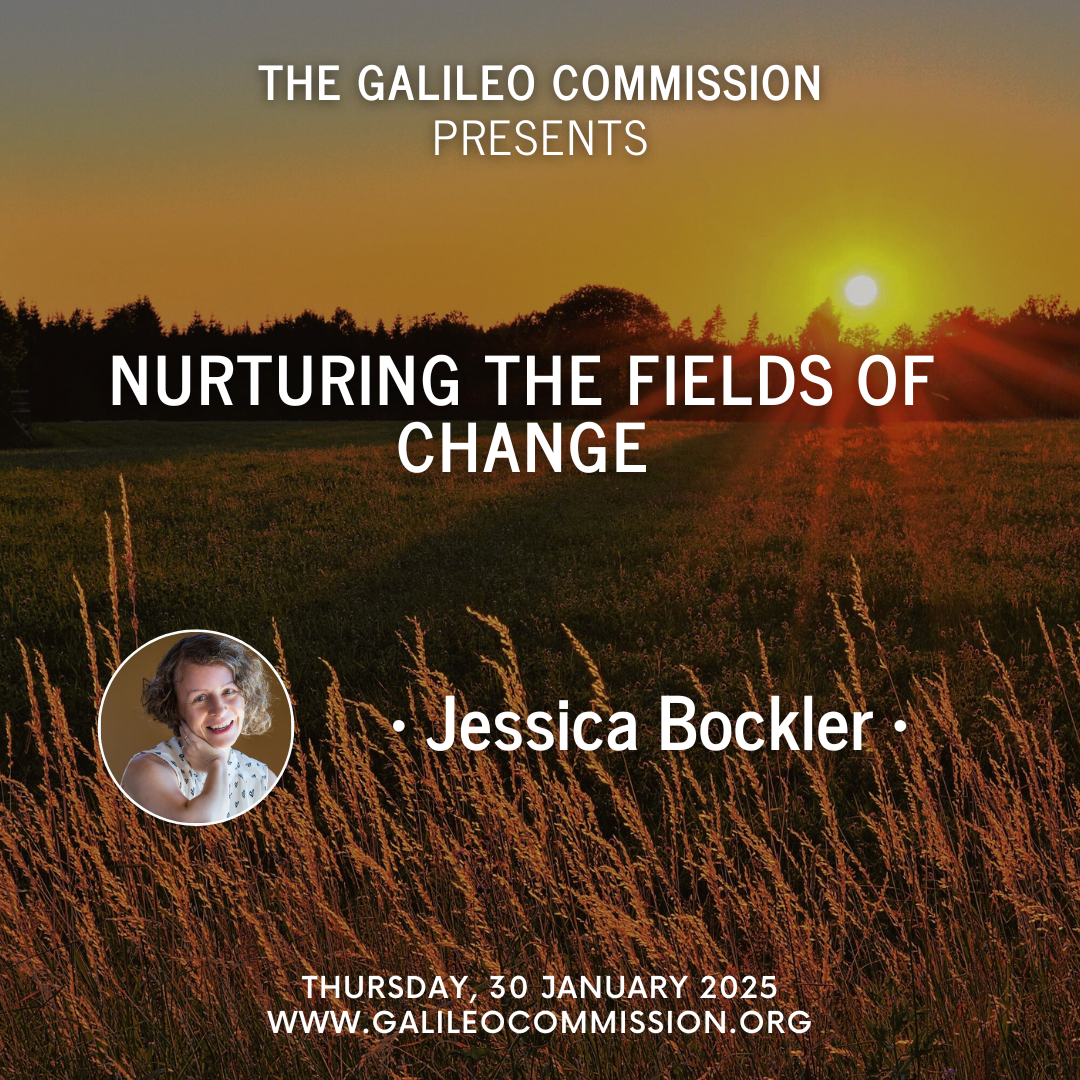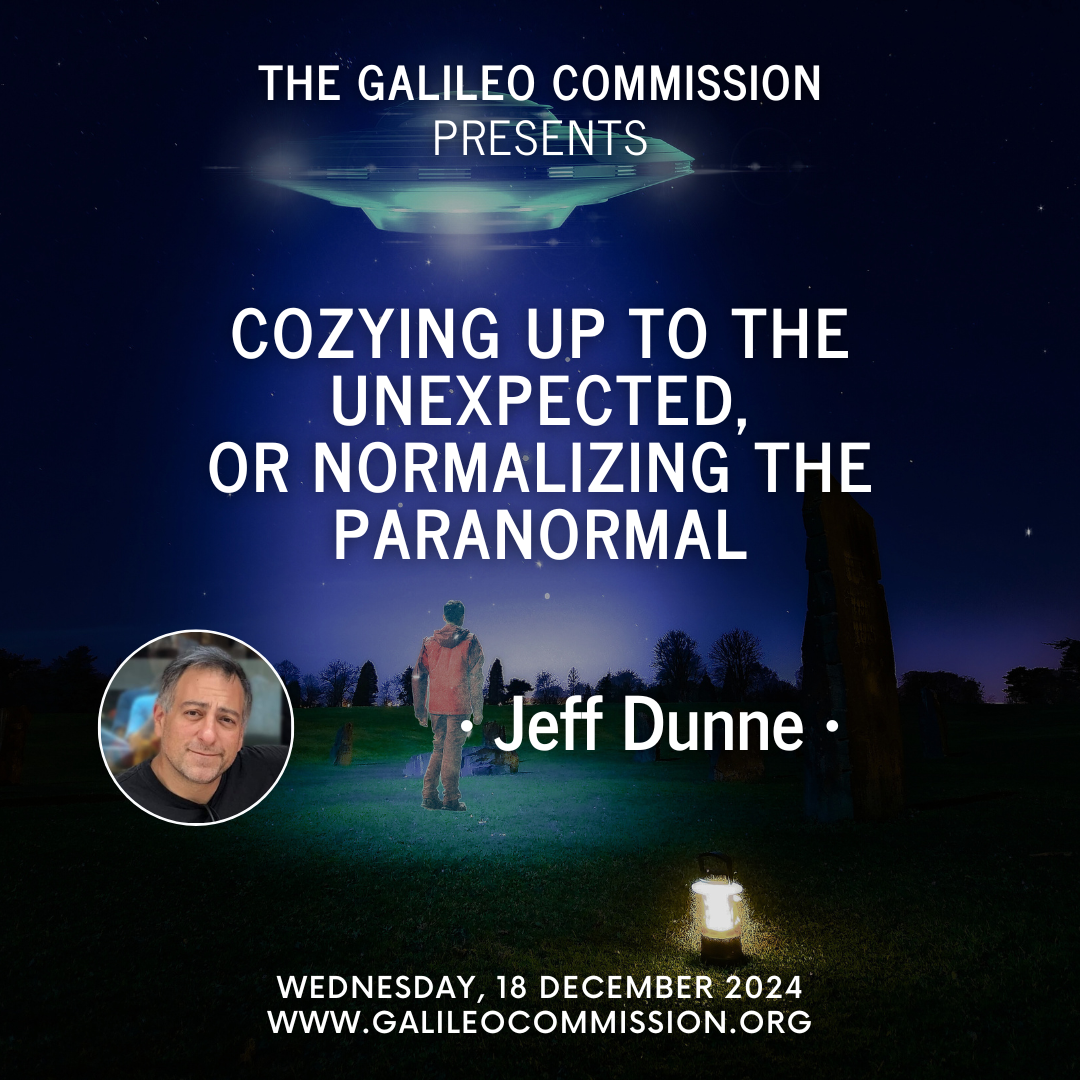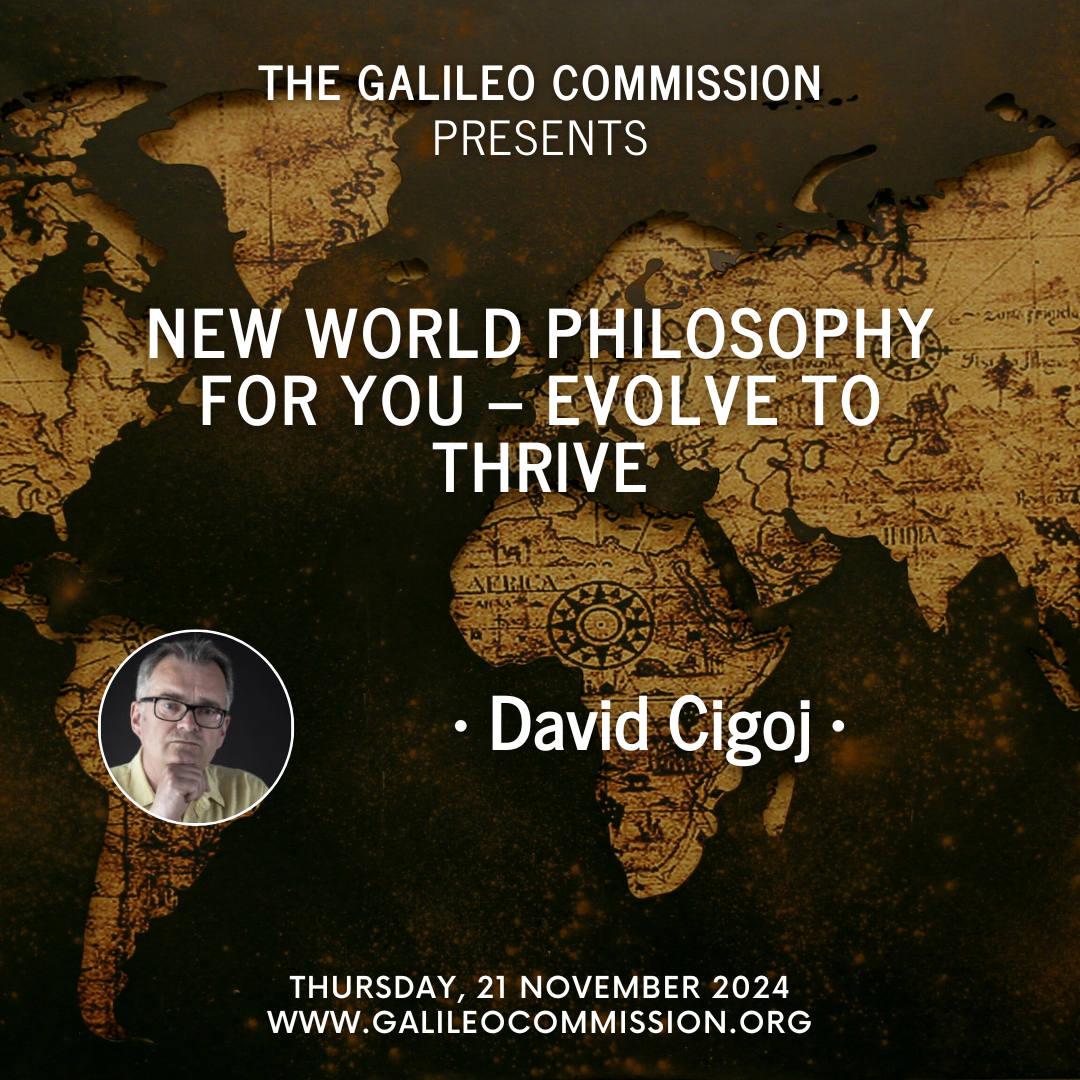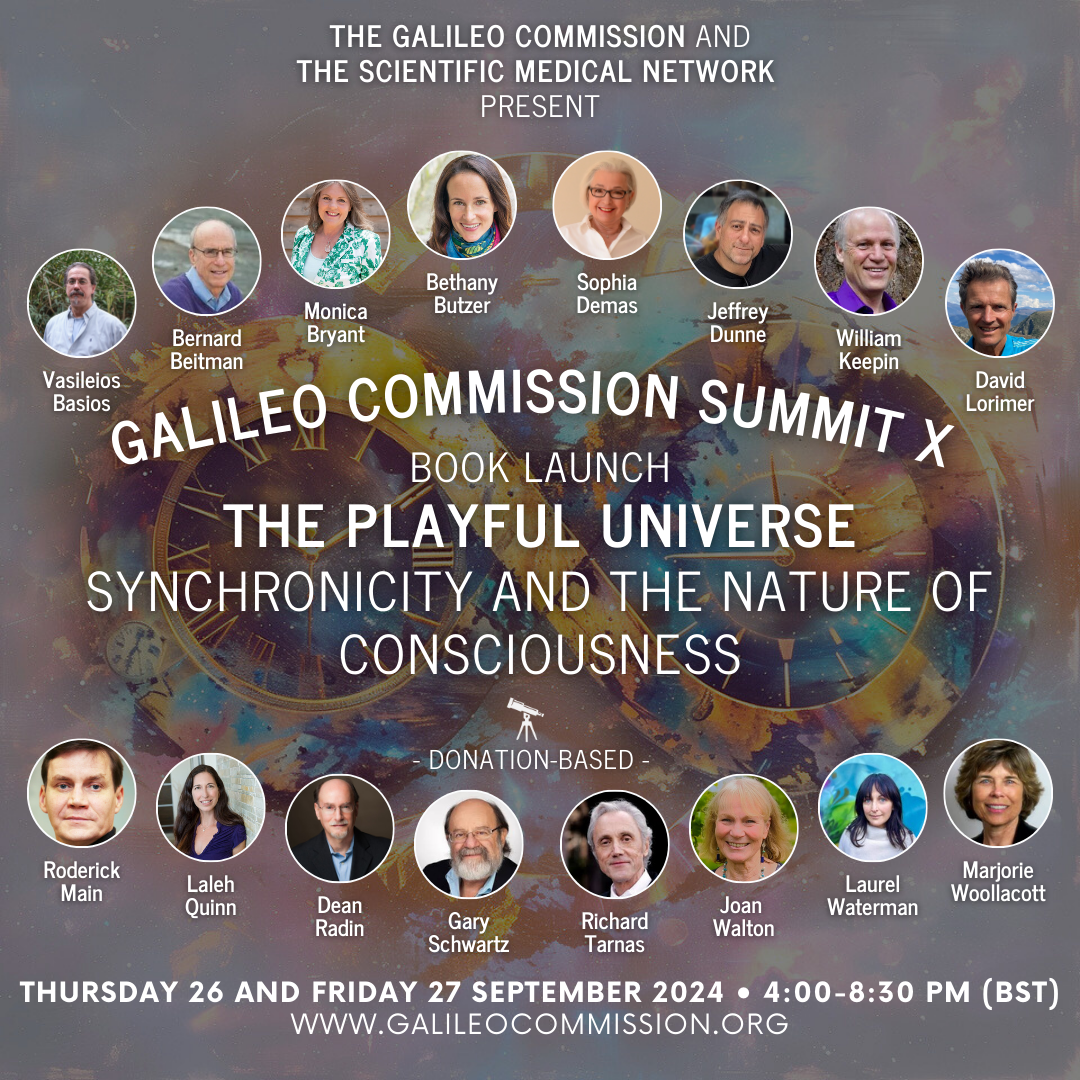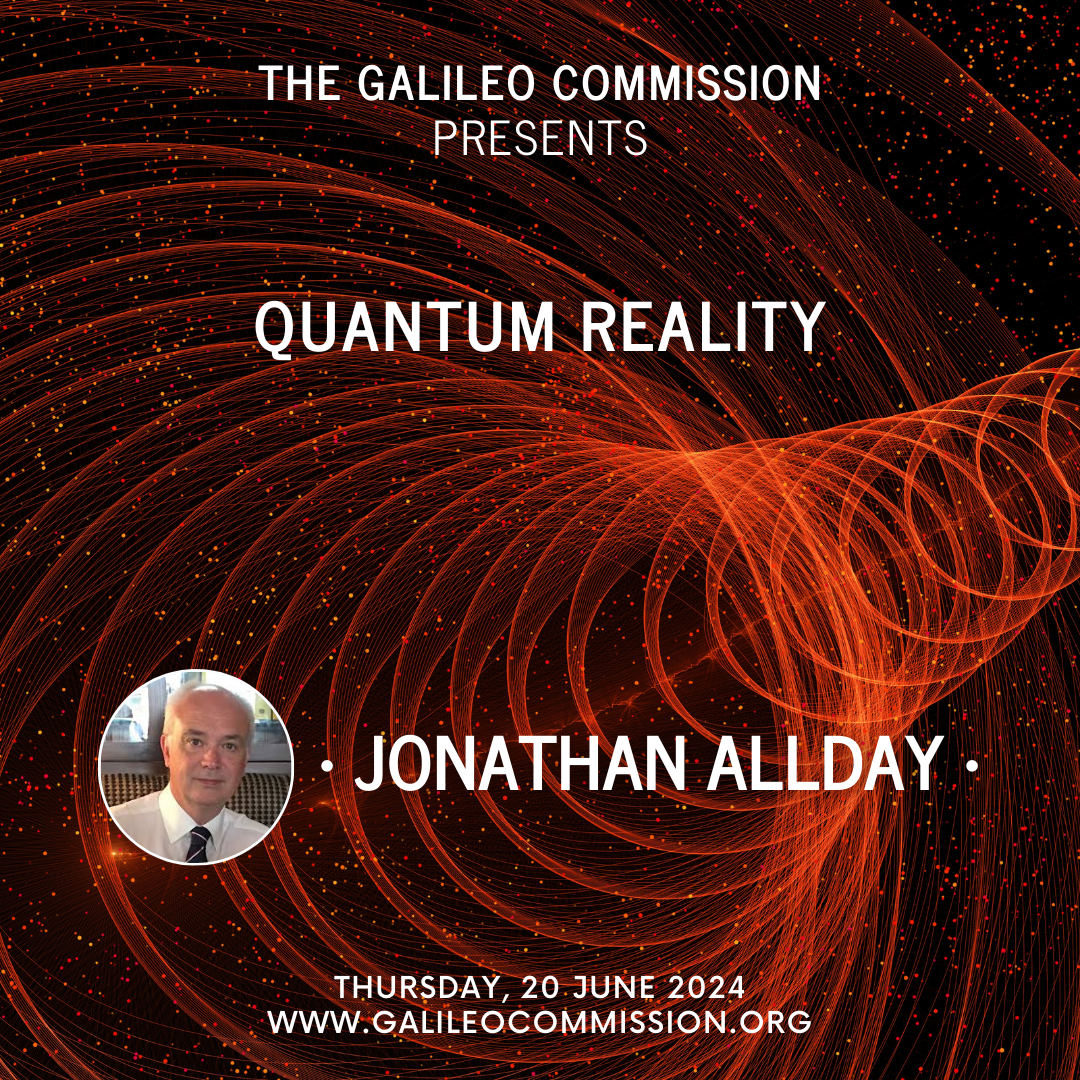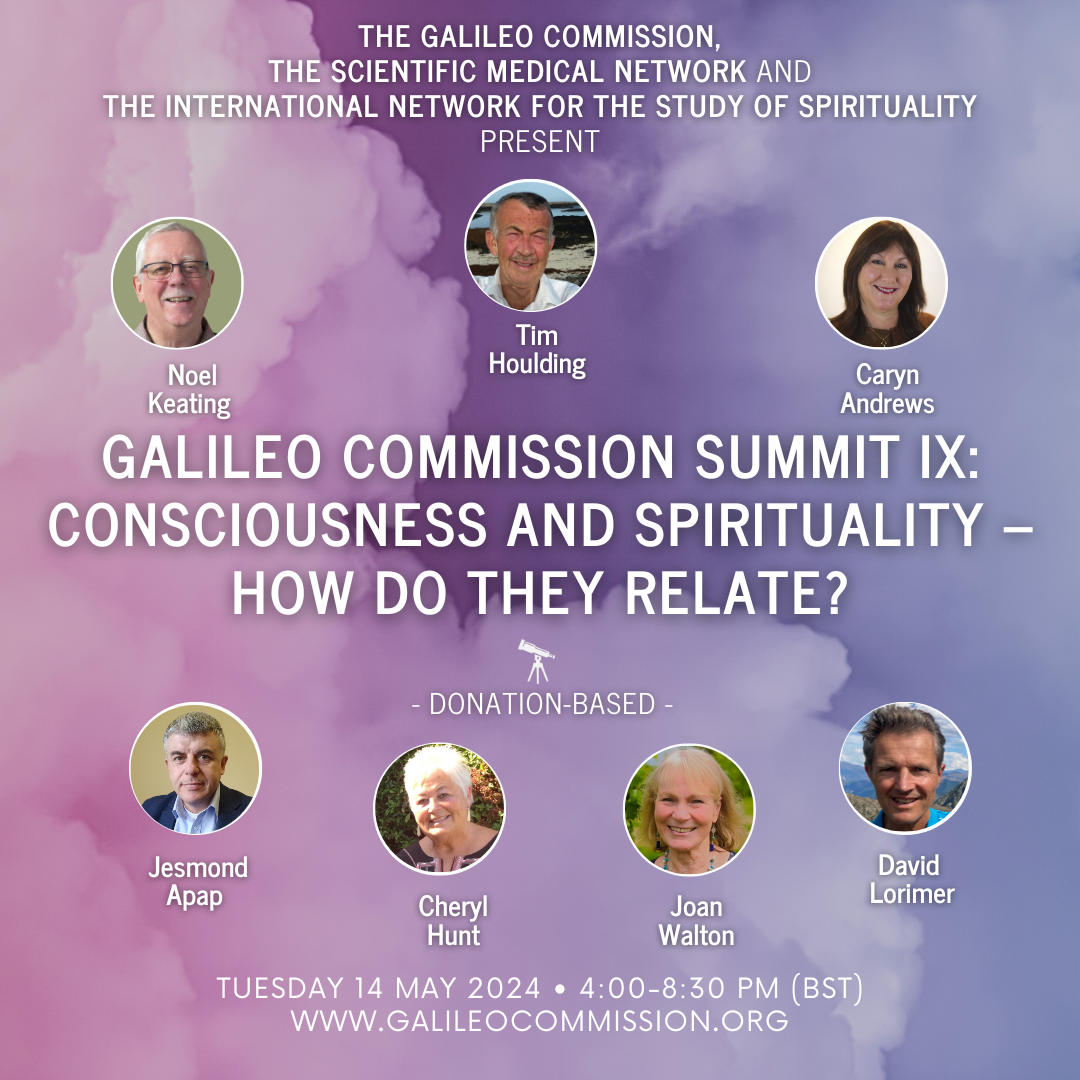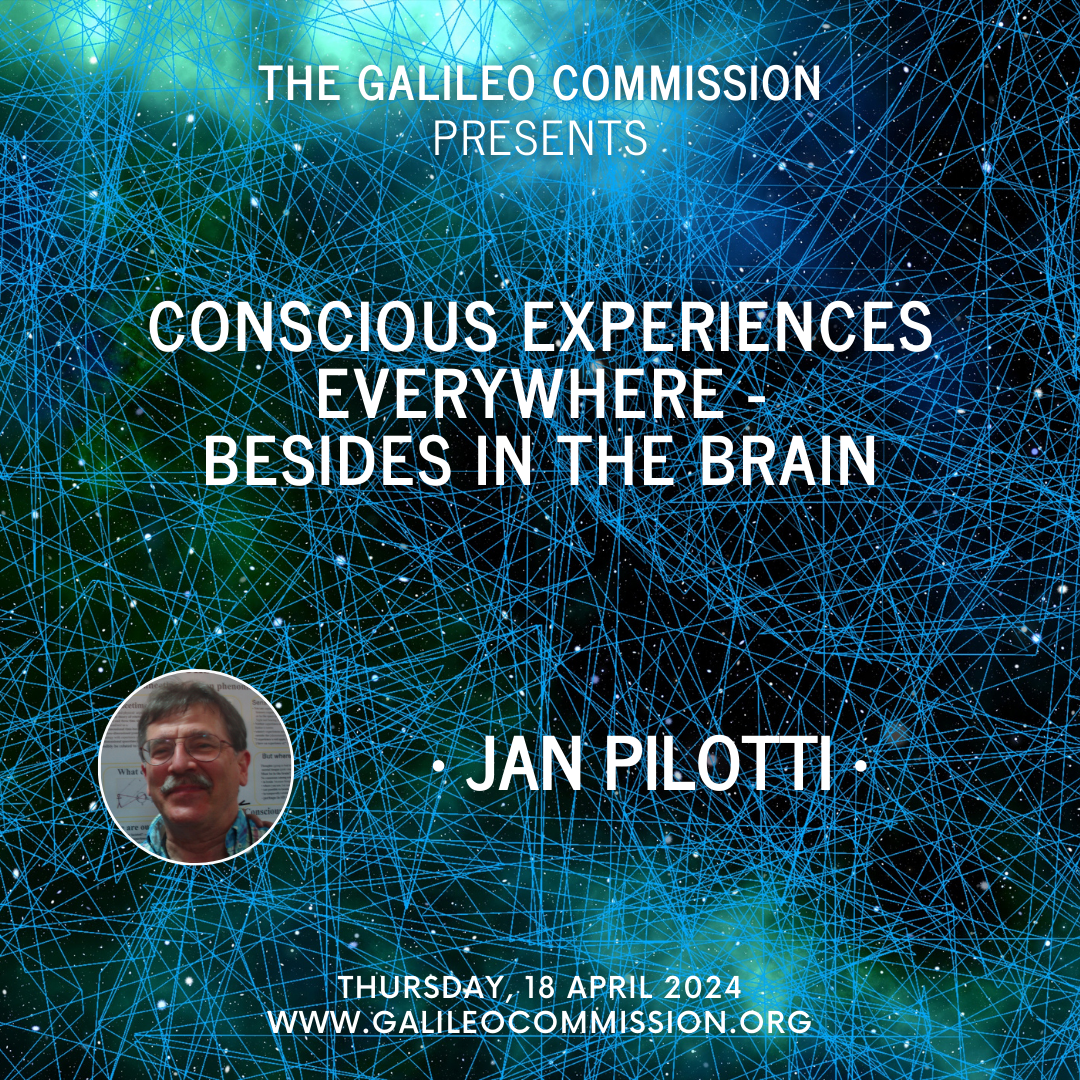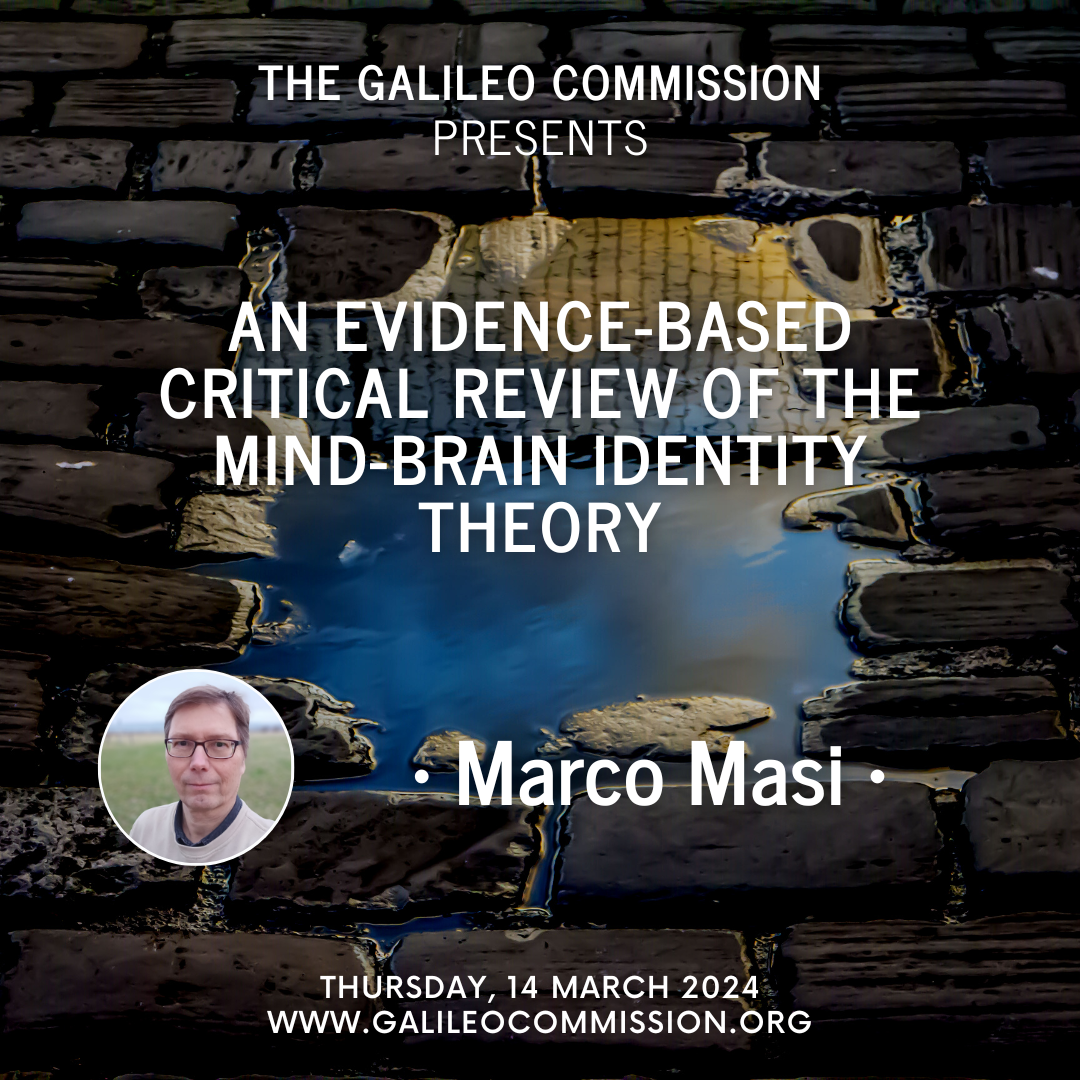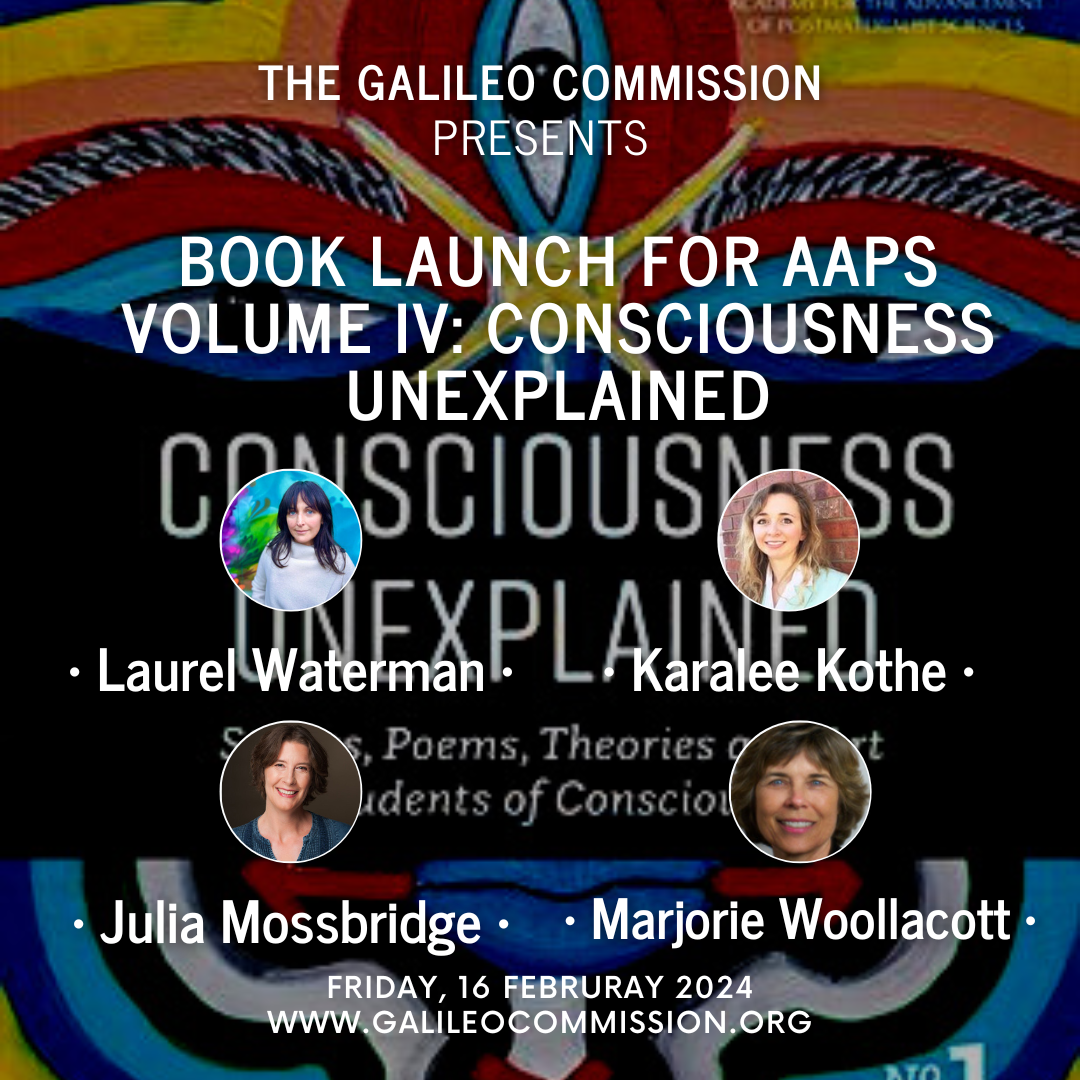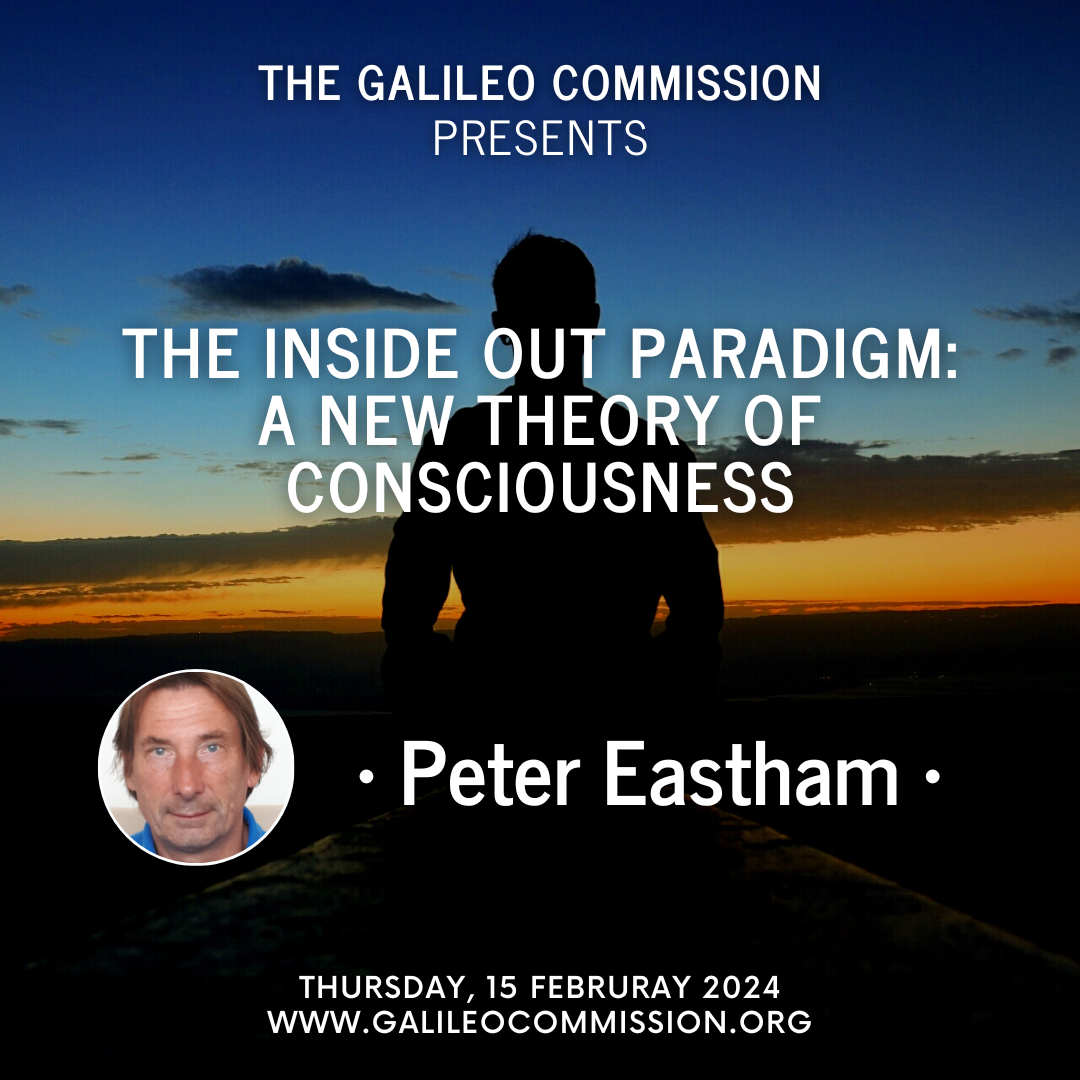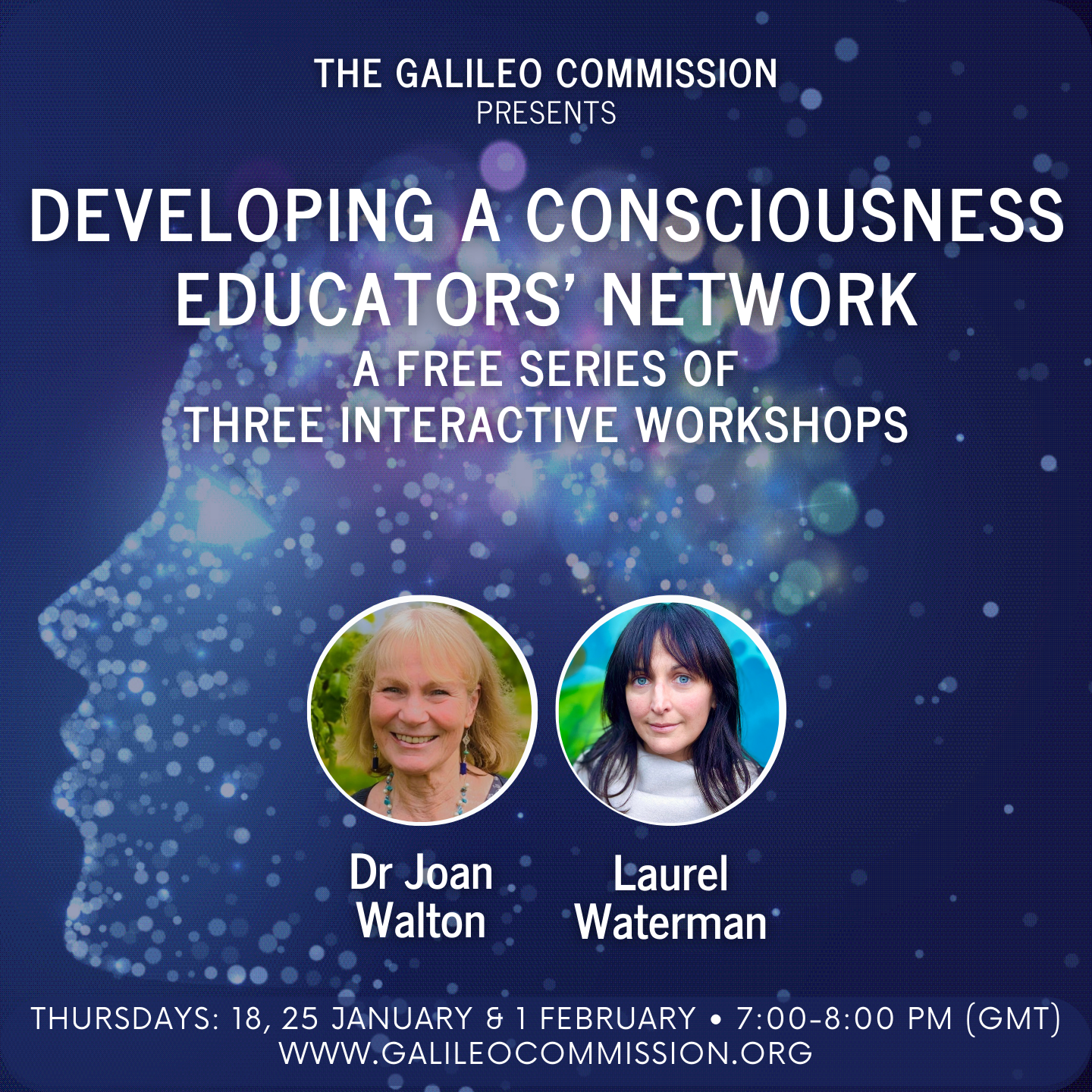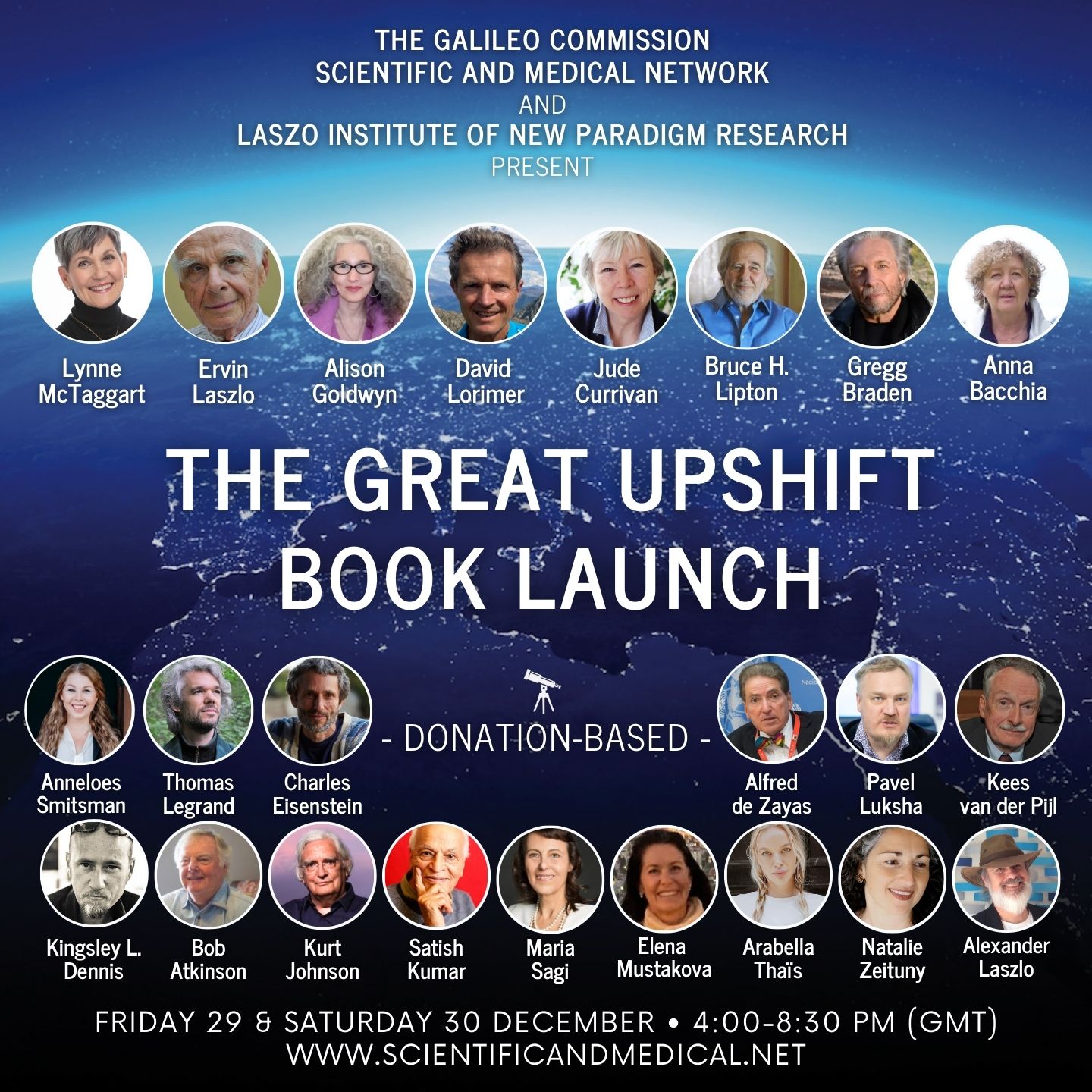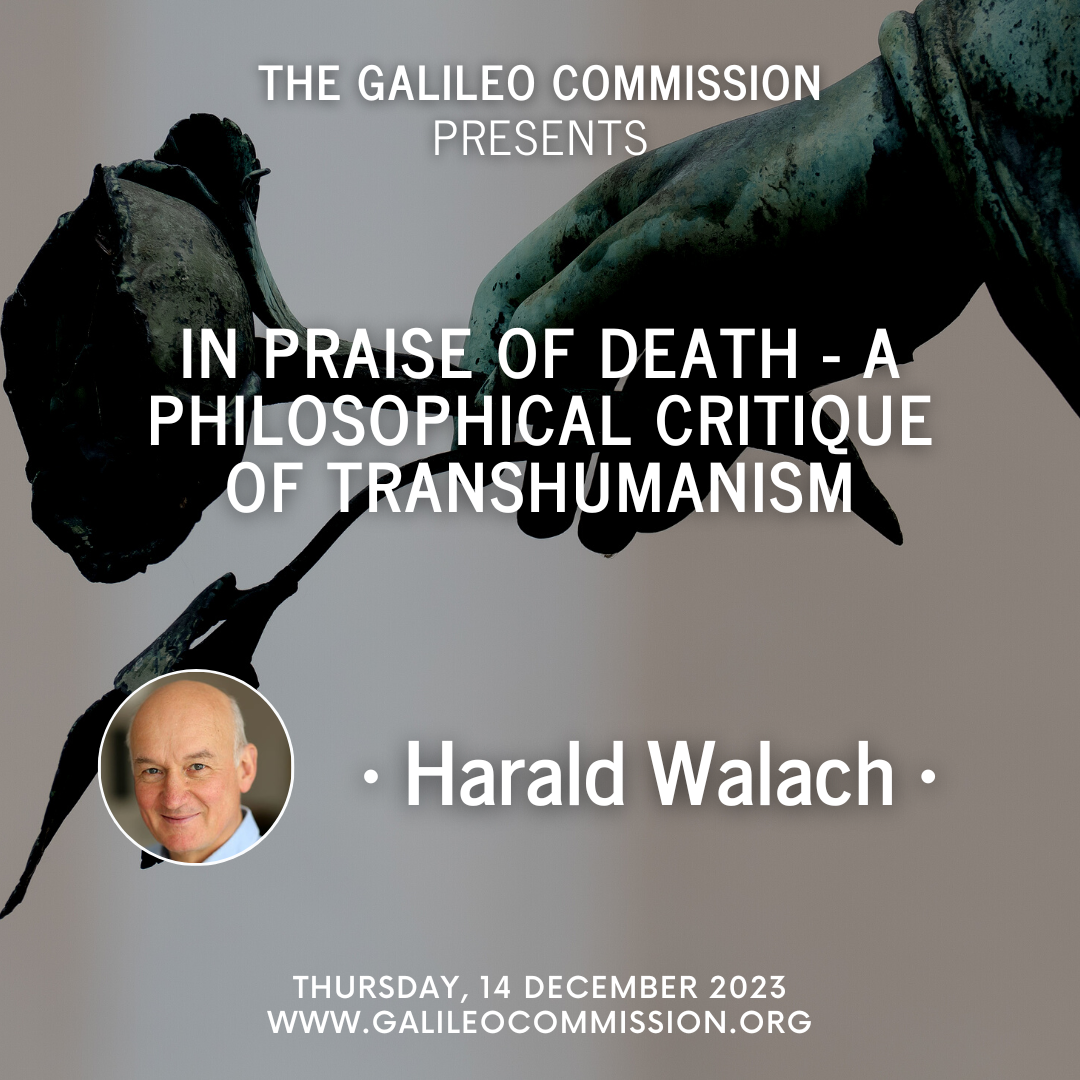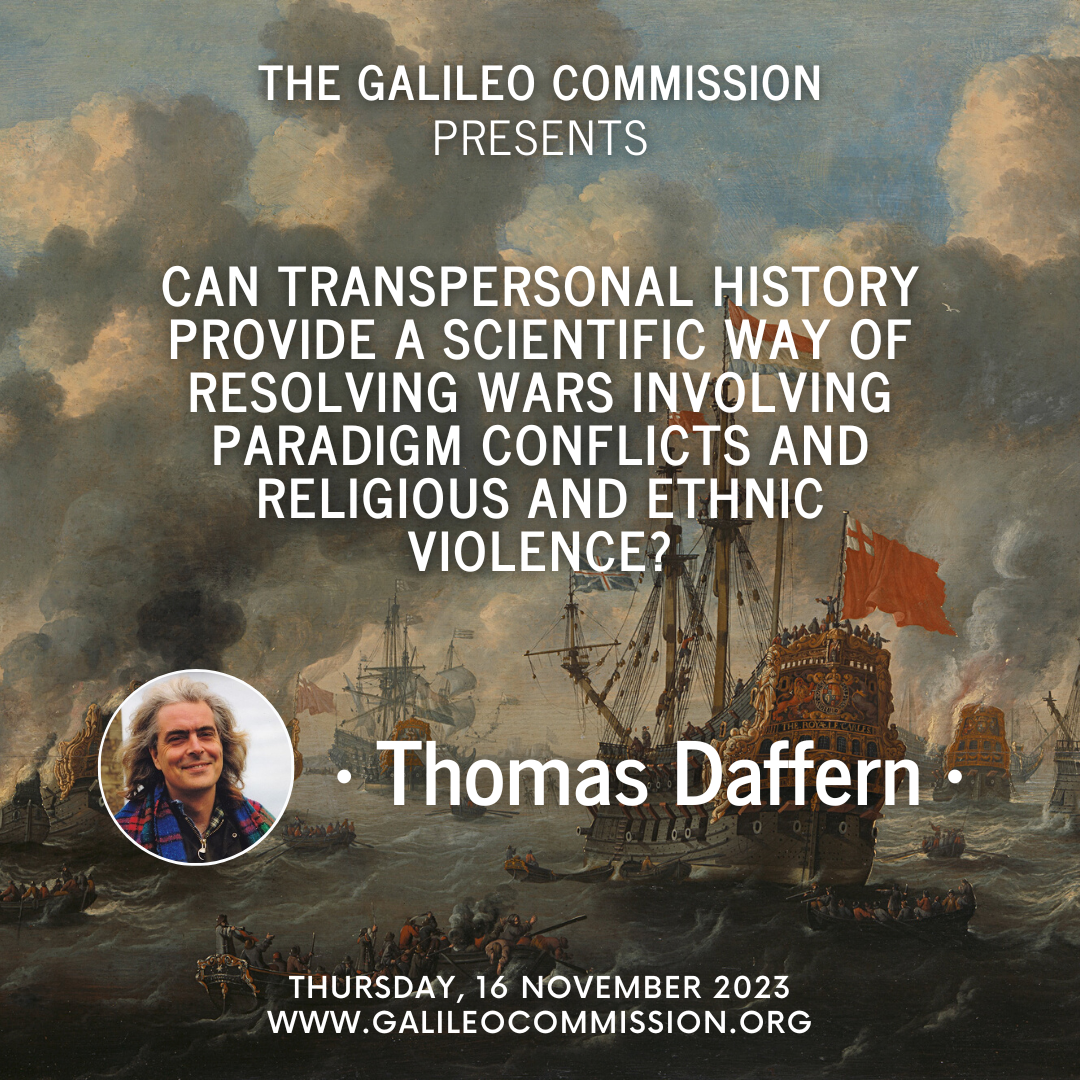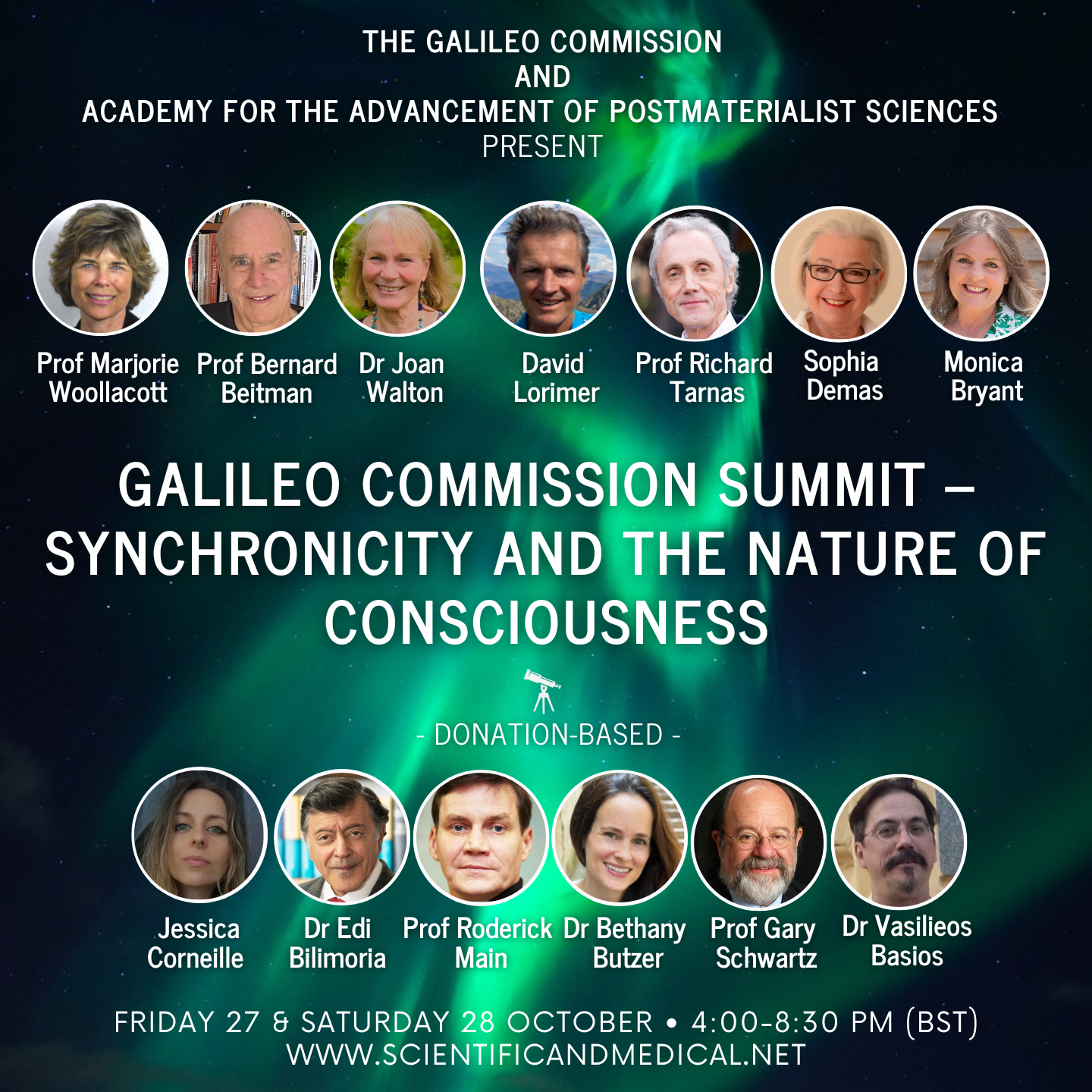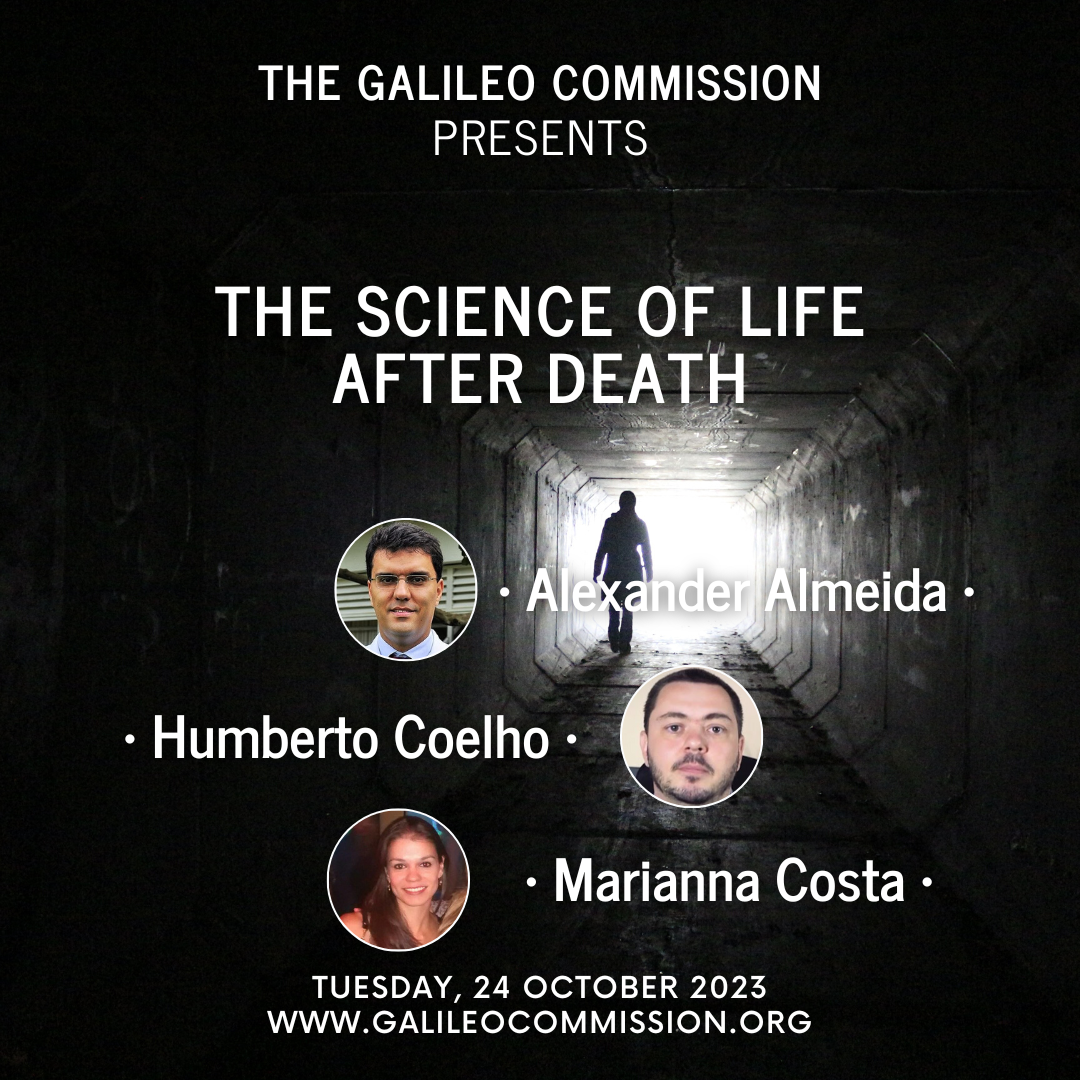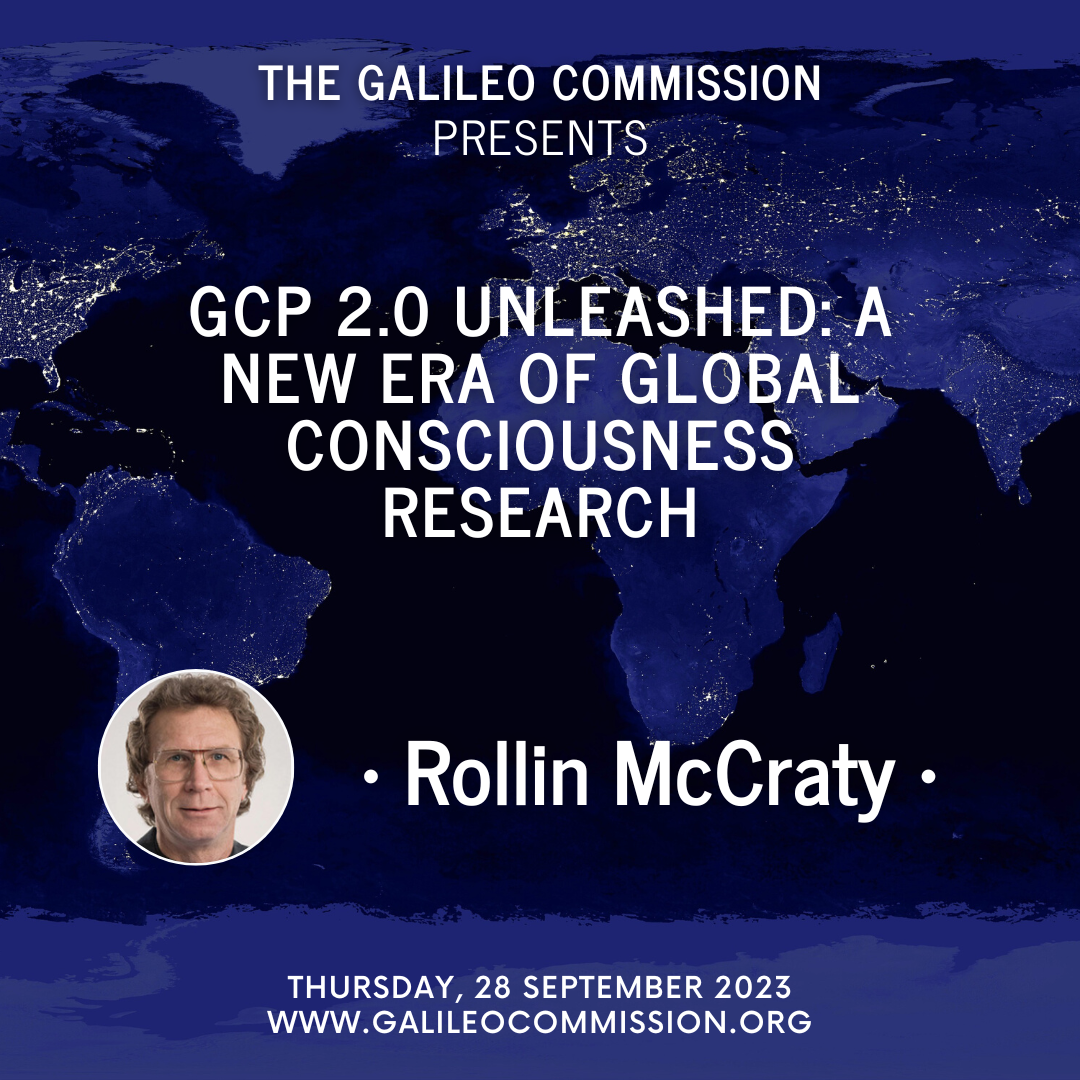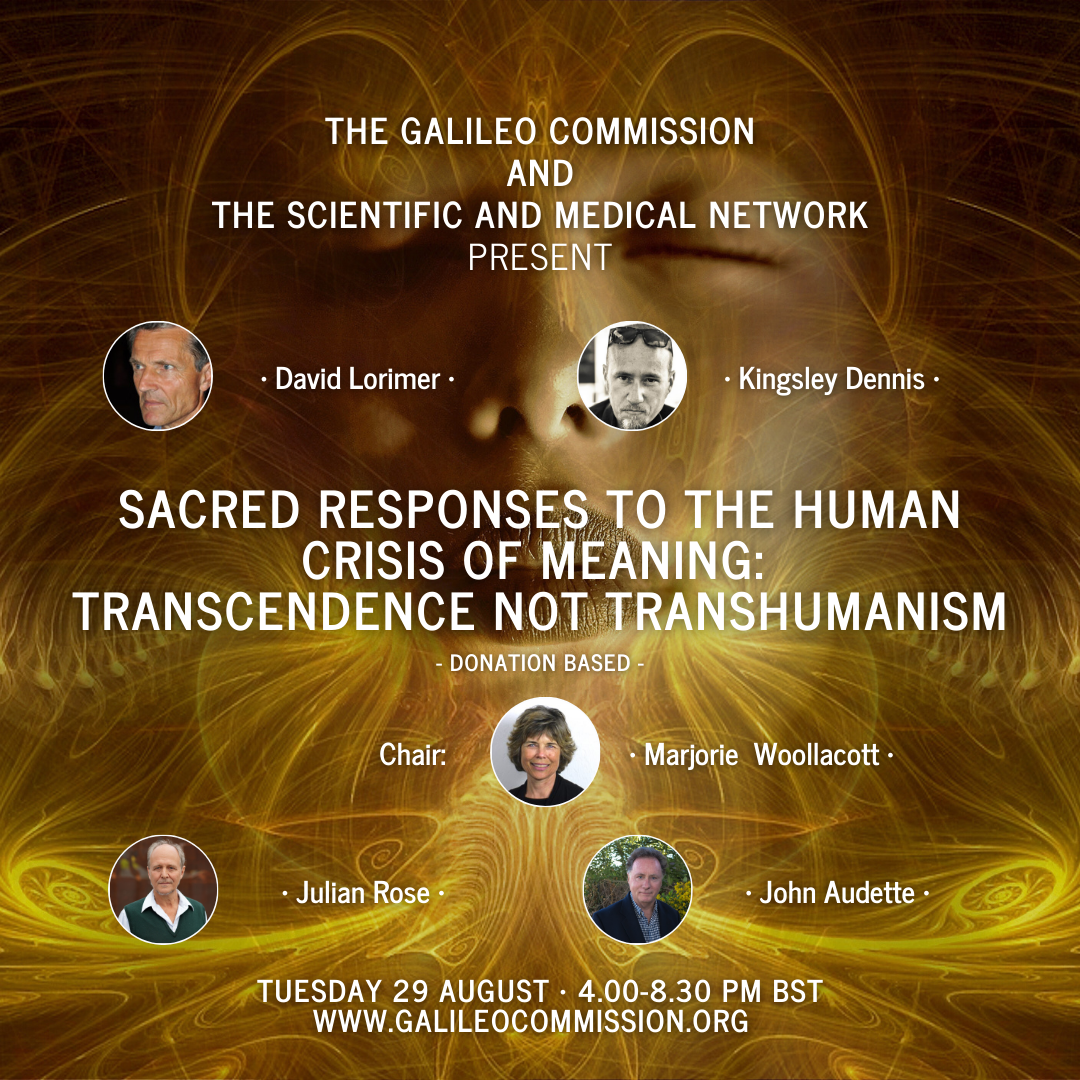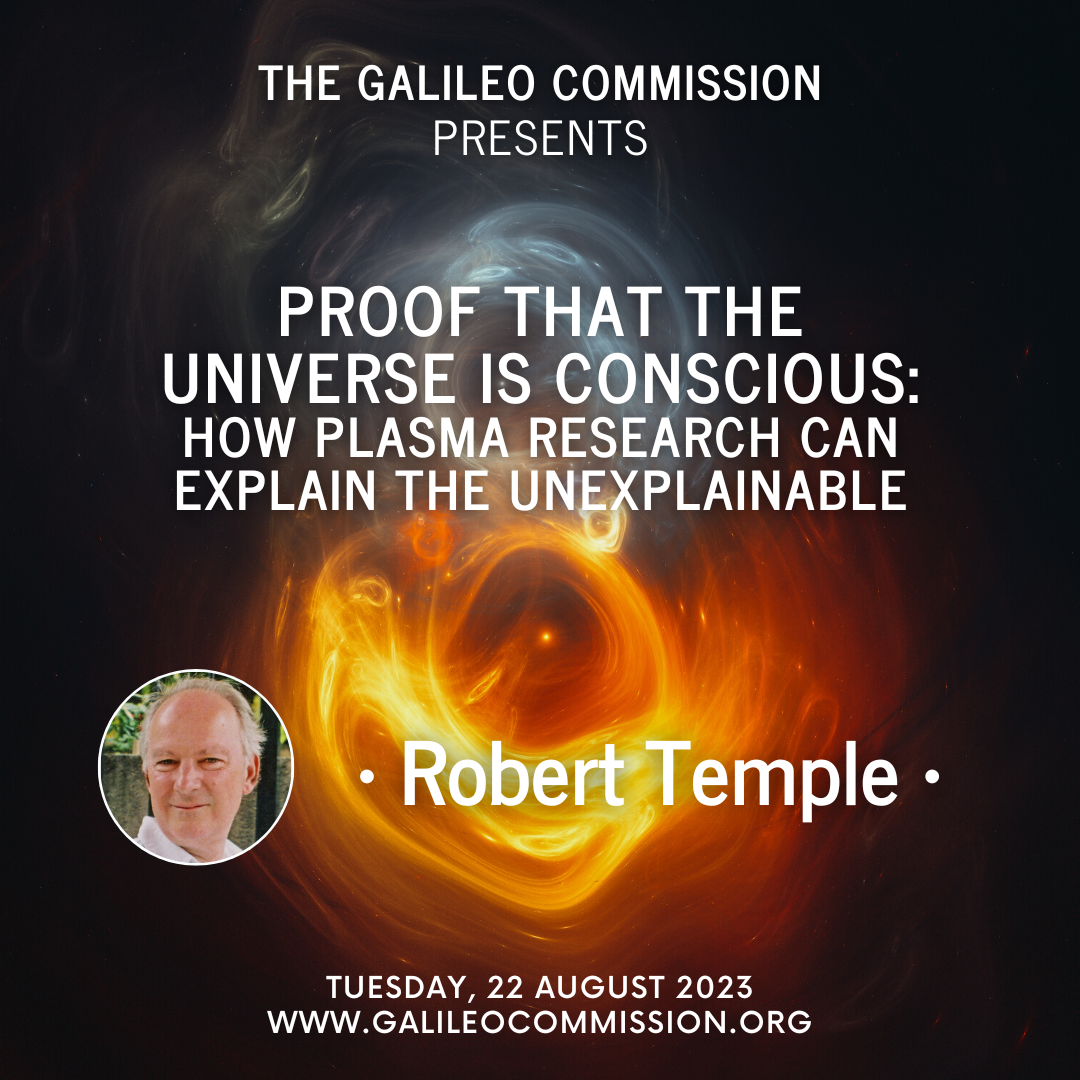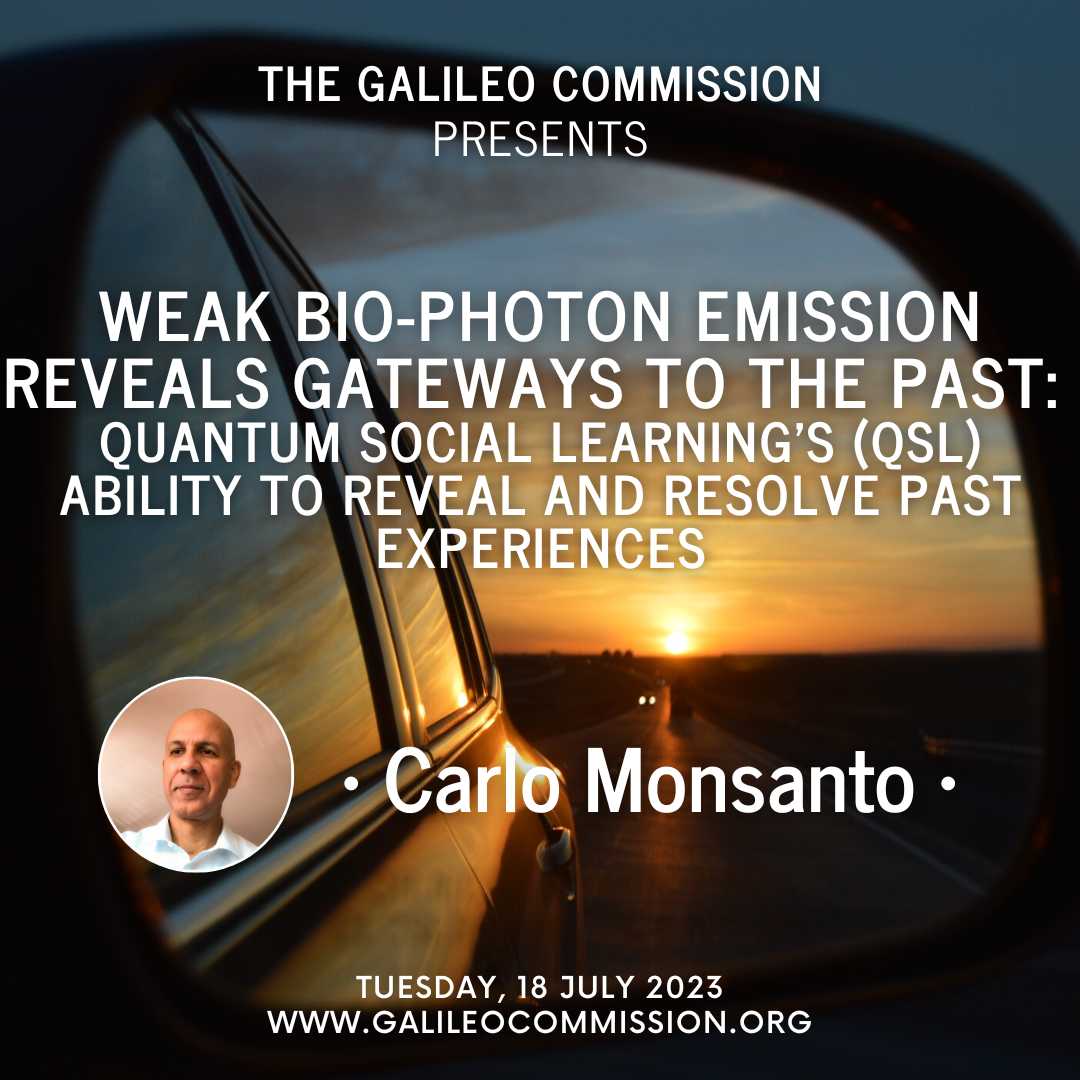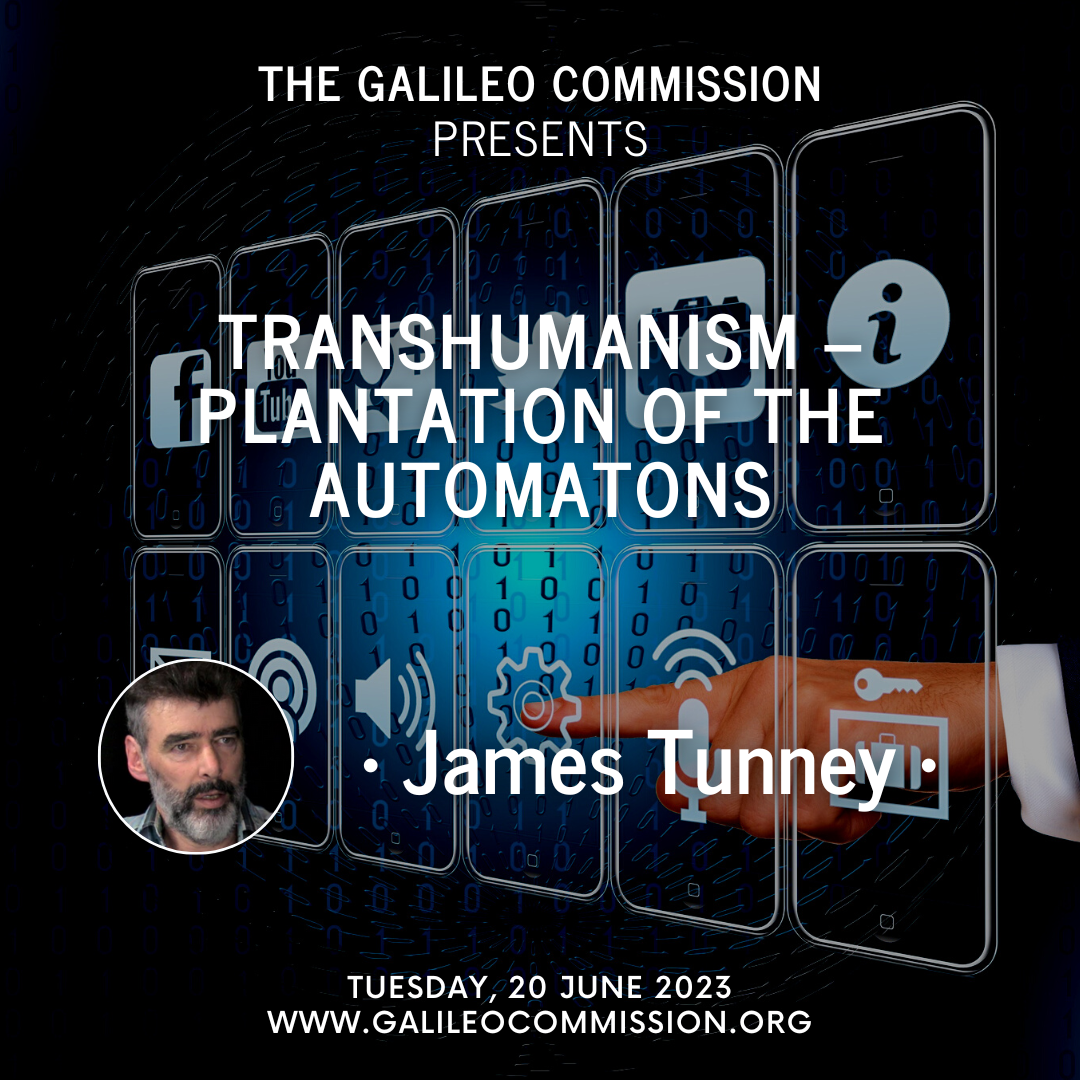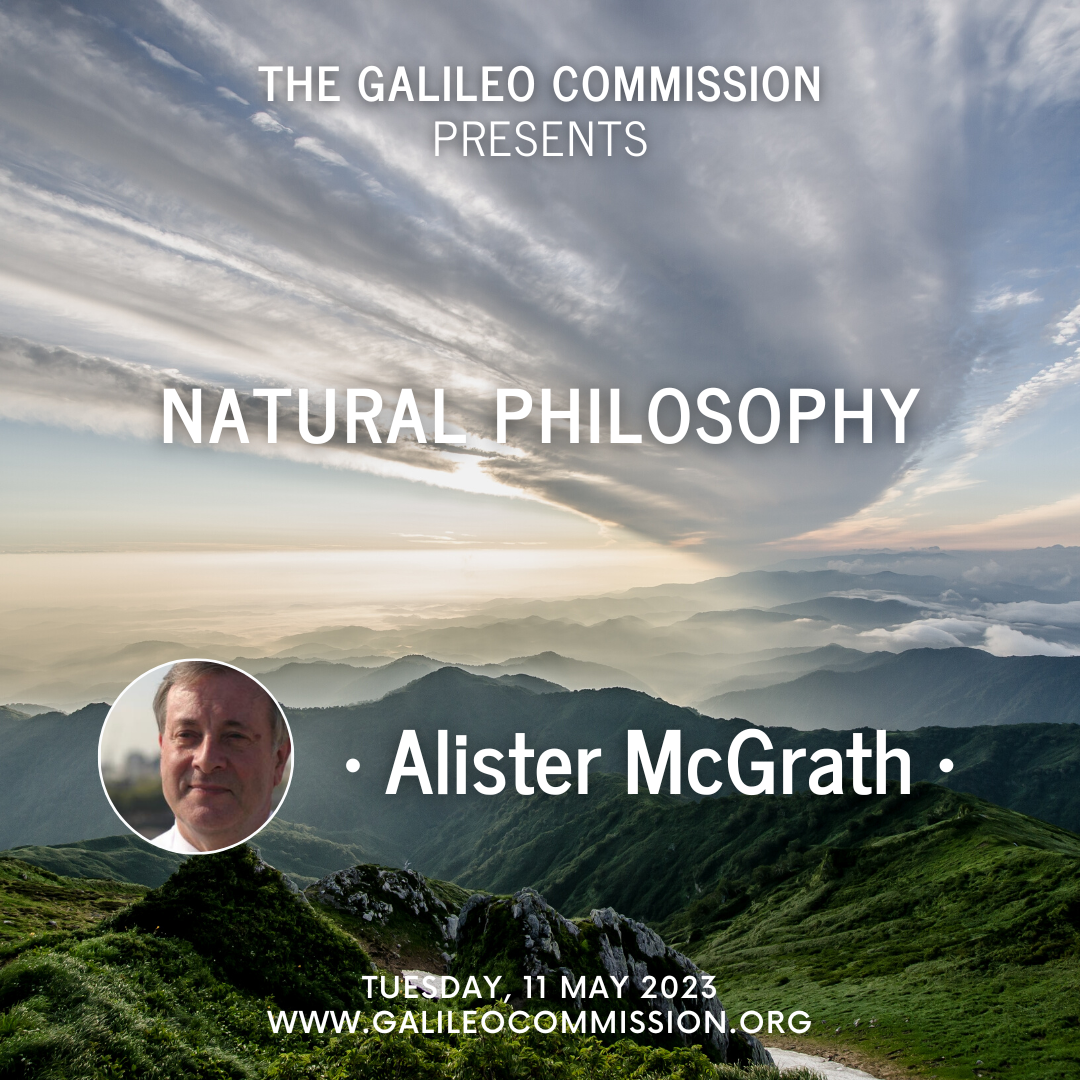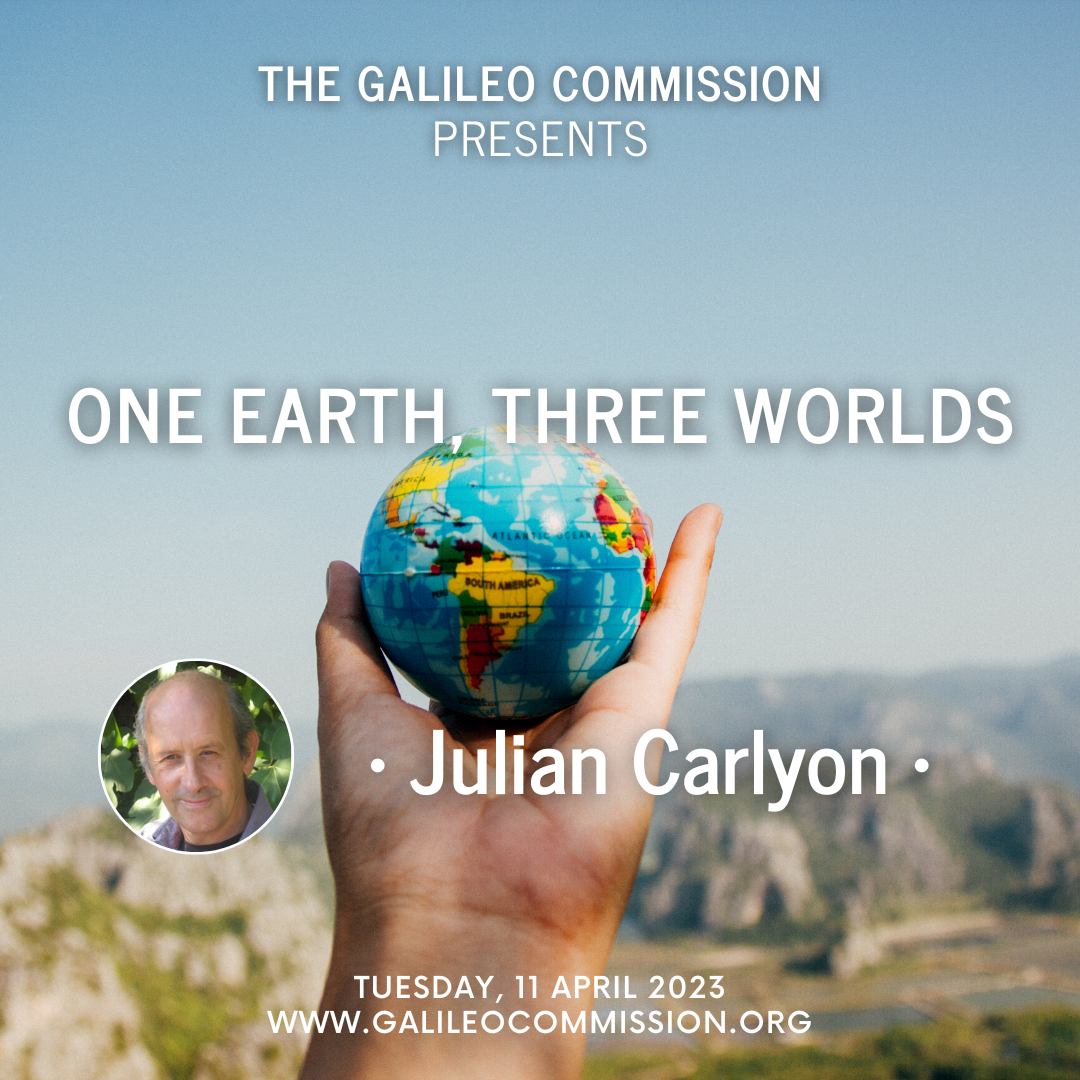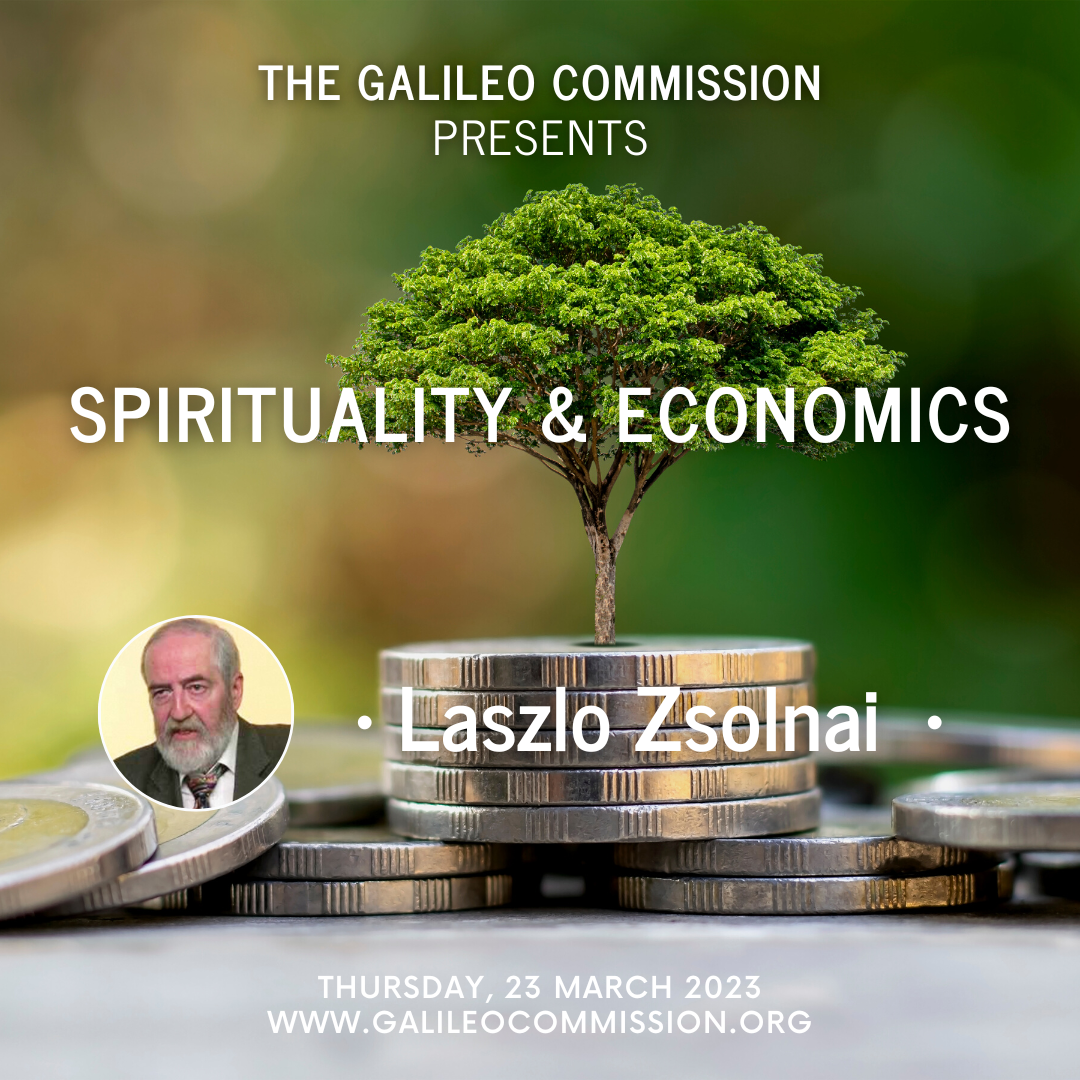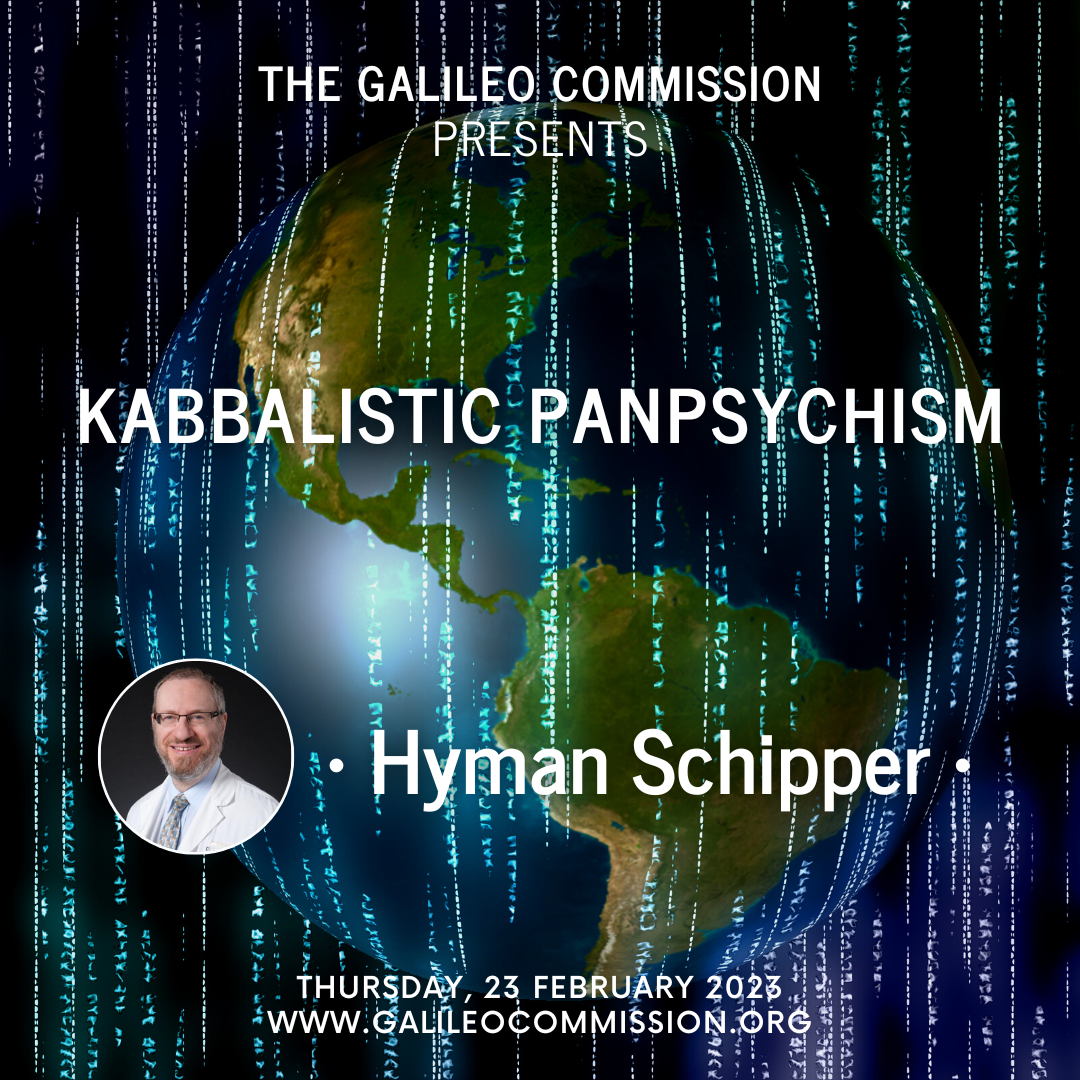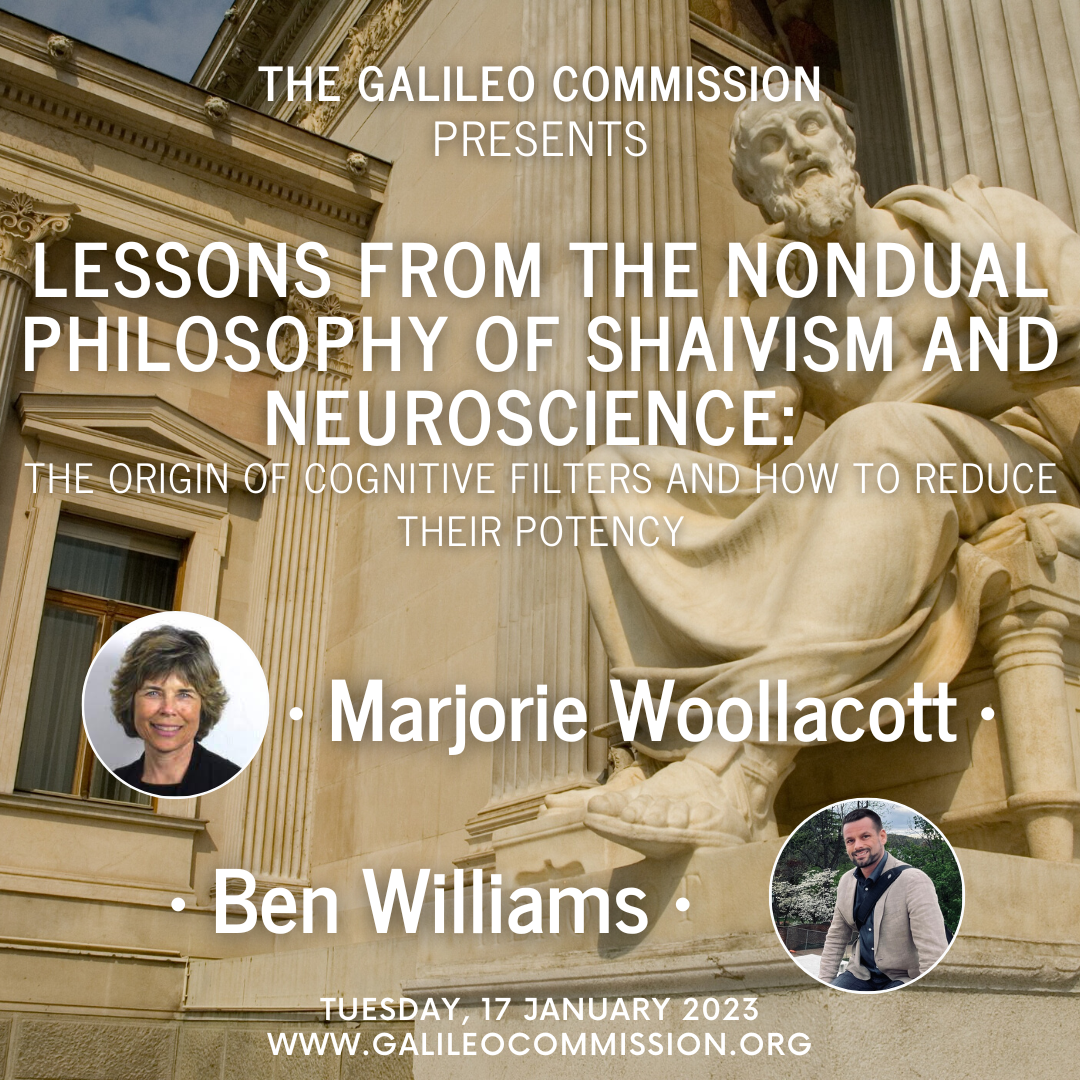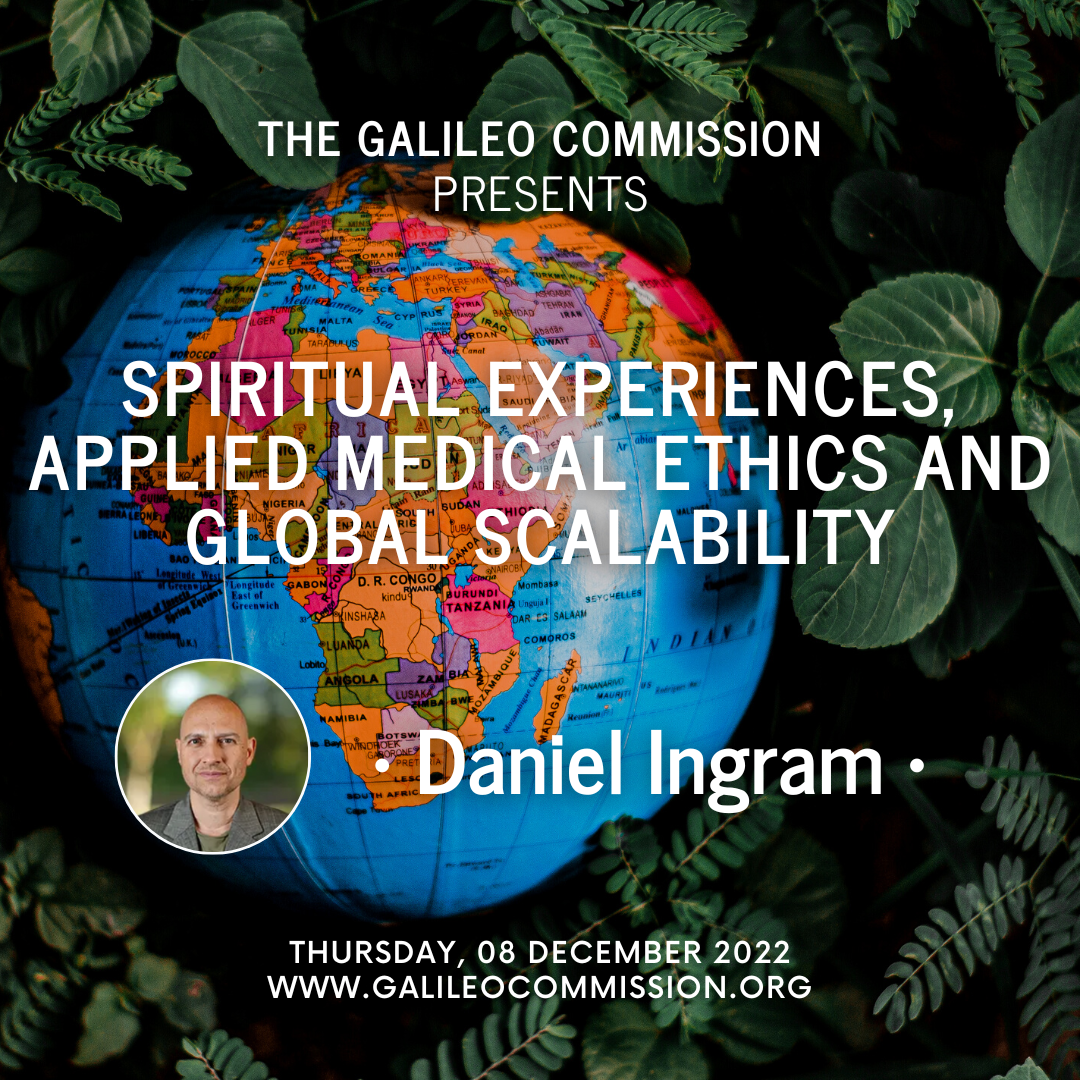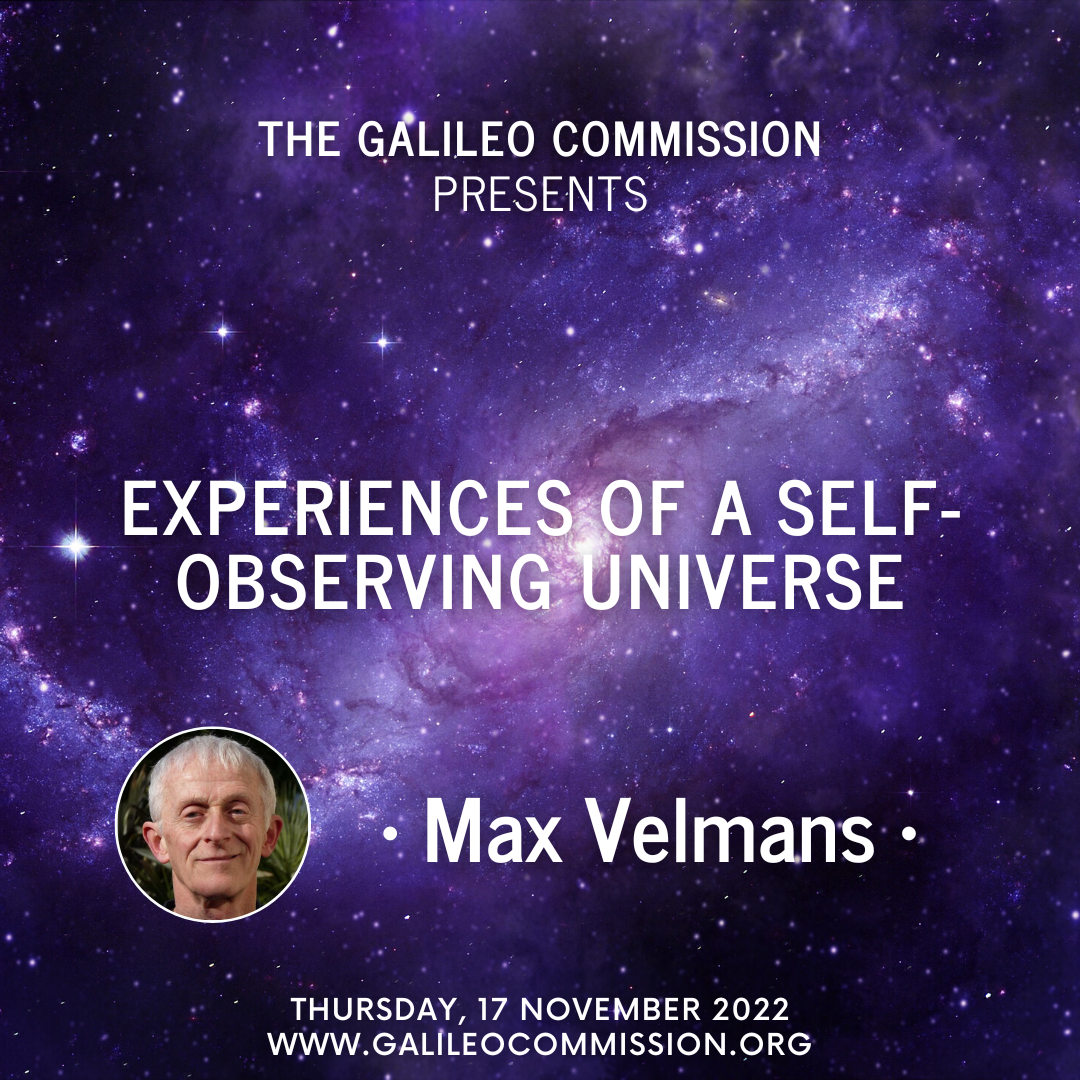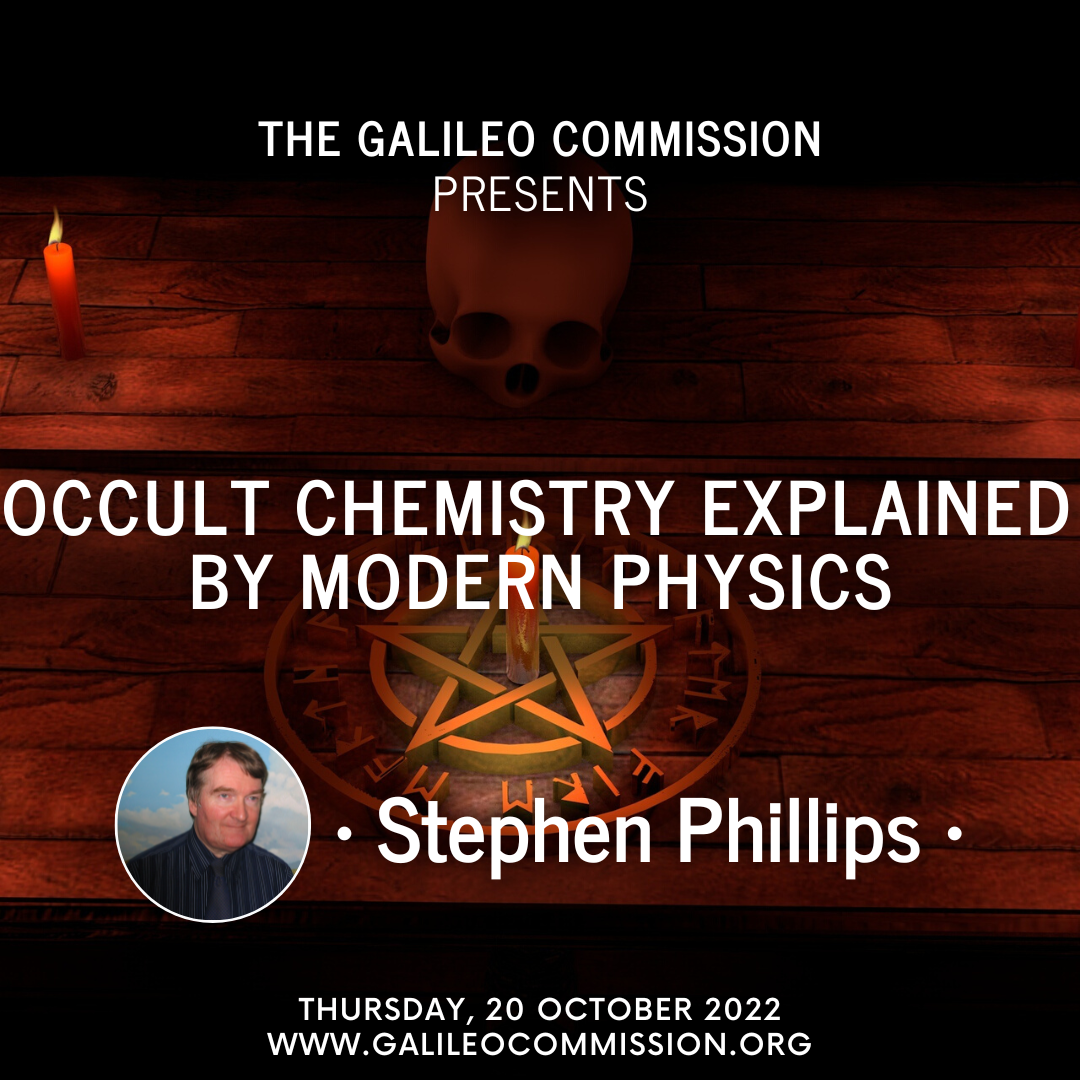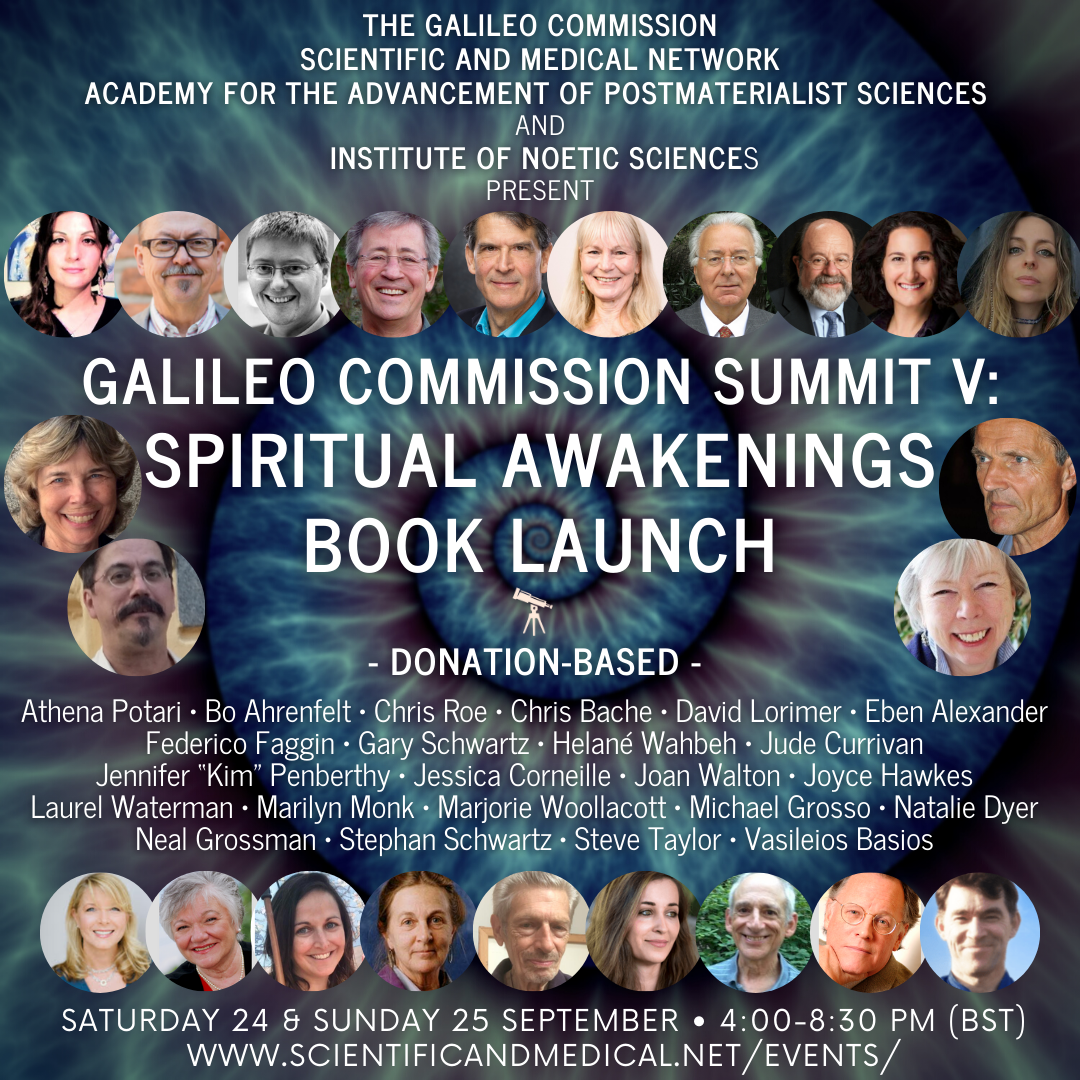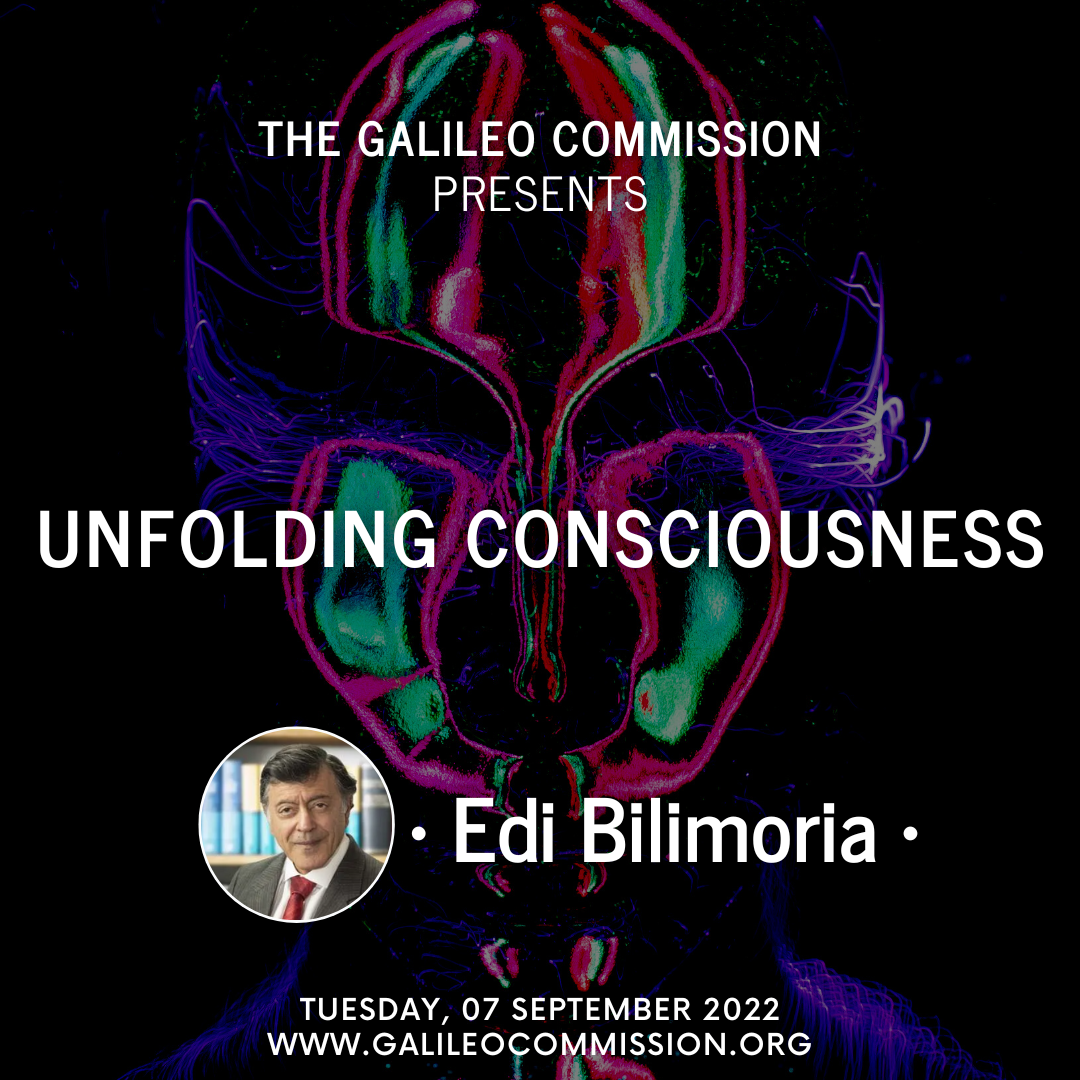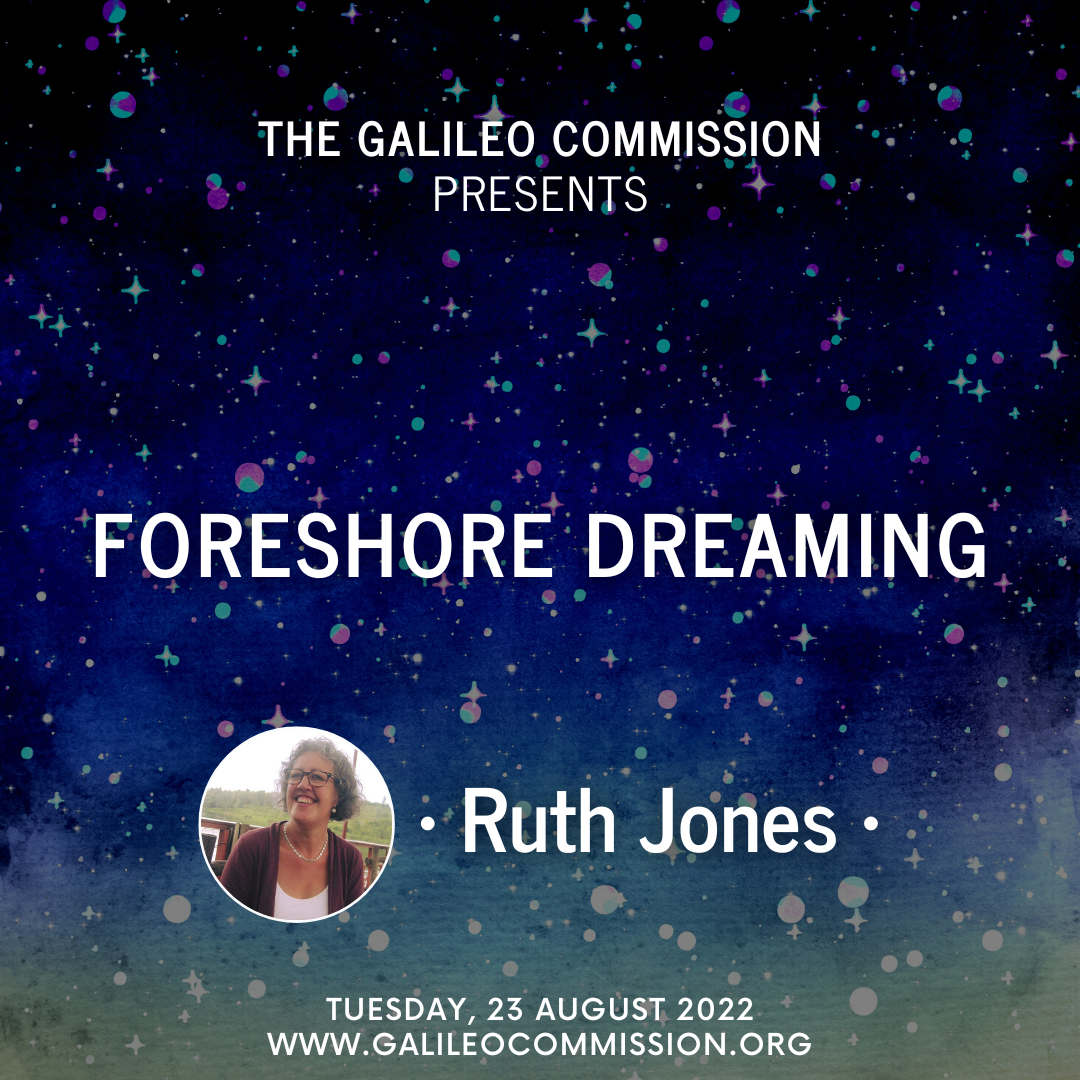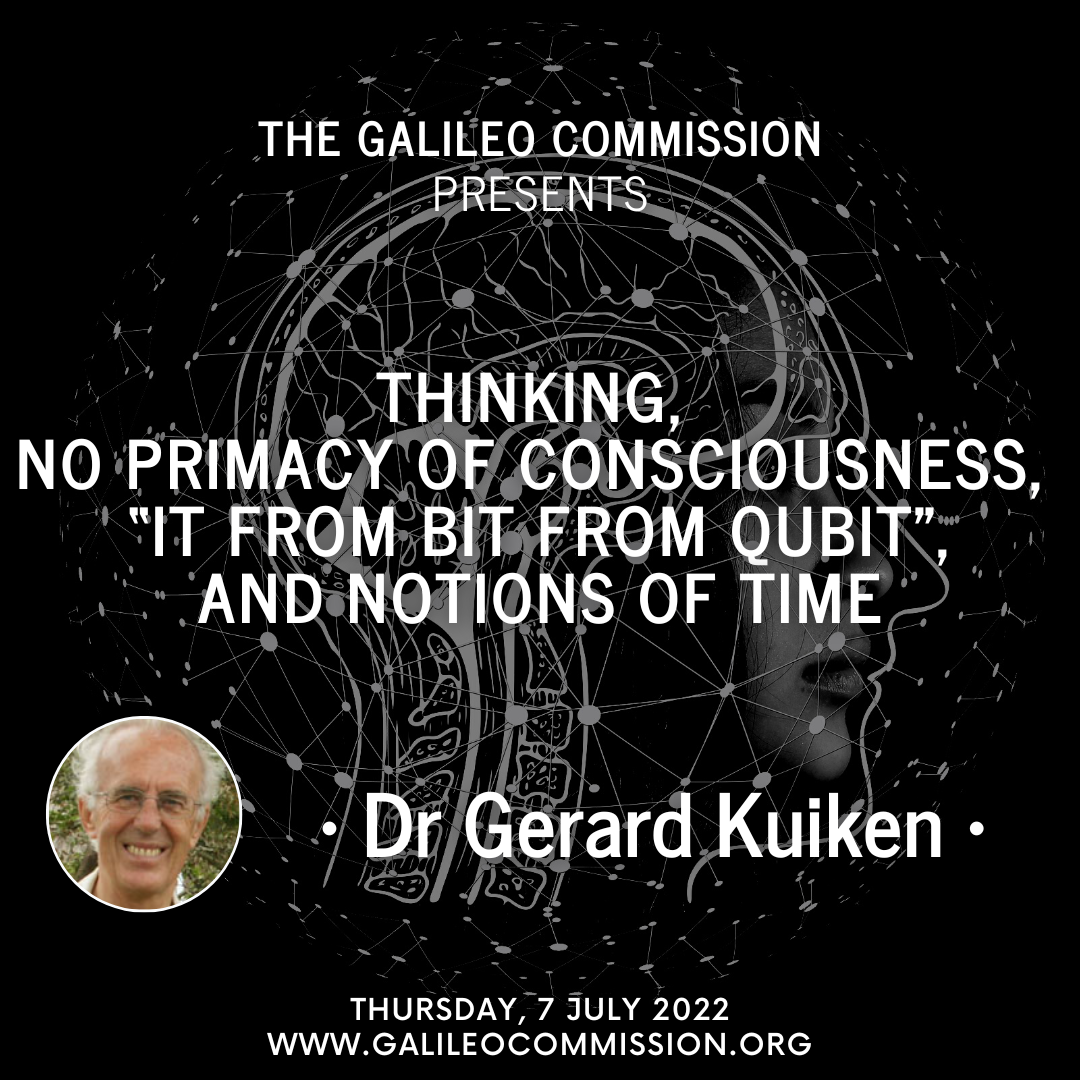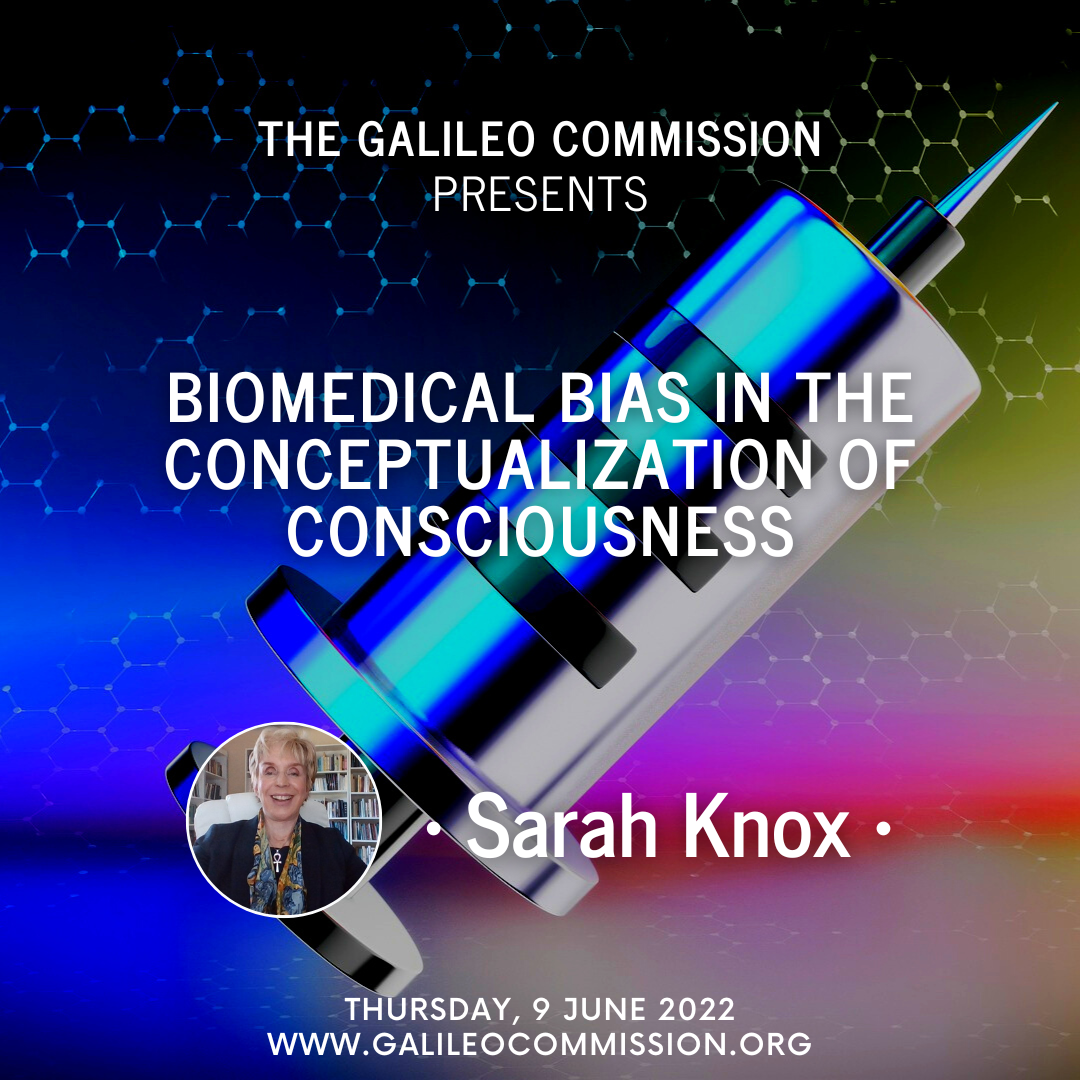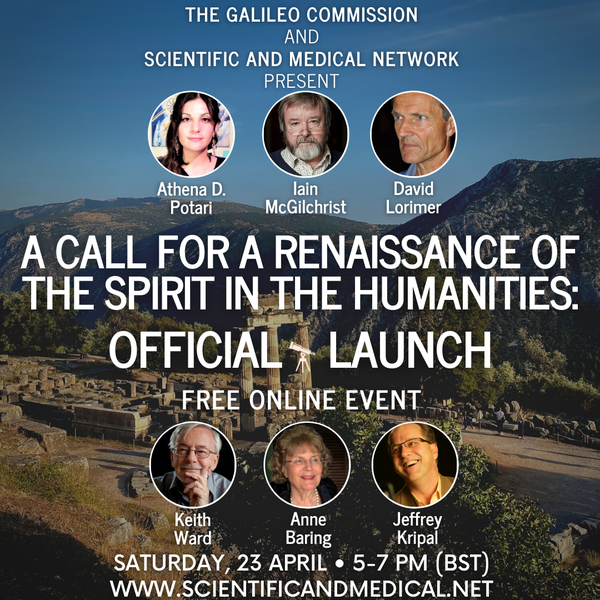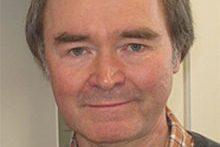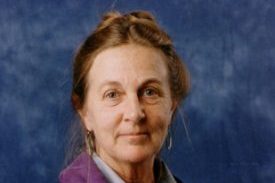Jonathan Allday: Quantum Reality
Amongst physical theories, quantum mechanics is unique in having no clear consensus regarding the physical interpretation of the mathematics.
Imaginal Inspirations with Annine van der Meer
David's Guest today is Dr Annine E.G. van der Meer, a Dutch historian of religion who holds a PhD in theology from the University of Utrecht. She was the seventh, last and only female student to write her doctoral thesis under the guidance of the late Prof. Dr. Gilles Quispel.
Galileo Commission Summit IX: Consciousness and Spirituality – How do they relate?
Spirituality and Consciousness Studies SIG – Original Remit Joan Walton, INSS Executive Committee ‘Spirituality’ and ‘consciousness’ are
Jonathan Allday: Quantum Reality
Amongst physical theories, quantum mechanics is unique in having no clear consensus regarding the physical interpretation of the mathematics.
Imaginal Inspirations with Annine van der Meer
David's Guest today is Dr Annine E.G. van der Meer, a Dutch historian of religion who holds a PhD in theology from the University of Utrecht. She was the seventh, last and only female student to write her doctoral thesis under the guidance of the late Prof. Dr. Gilles Quispel.
Galileo Commission Summit IX: Consciousness and Spirituality – How do they relate?
Spirituality and Consciousness Studies SIG – Original Remit Joan Walton, INSS Executive Committee ‘Spirituality’ and ‘consciousness’ are
Jonathan Allday: Quantum Reality
Amongst physical theories, quantum mechanics is unique in having no clear consensus regarding the physical interpretation of the mathematics.
Imaginal Inspirations with Annine van der Meer
David's Guest today is Dr Annine E.G. van der Meer, a Dutch historian of religion who holds a PhD in theology from the University of Utrecht. She was the seventh, last and only female student to write her doctoral thesis under the guidance of the late Prof. Dr. Gilles Quispel.
Galileo Commission Summit IX: Consciousness and Spirituality – How do they relate?
Spirituality and Consciousness Studies SIG – Original Remit Joan Walton, INSS Executive Committee ‘Spirituality’ and ‘consciousness’ are
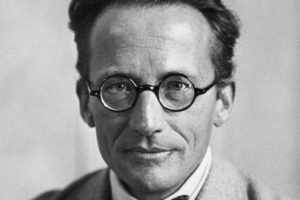
– Erwin Schrödinger
– Prof David Bohm
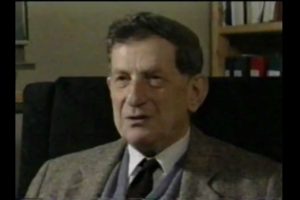
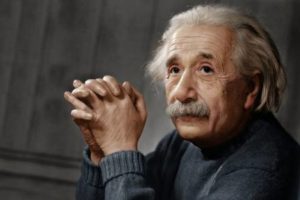
– Albert Einstein
Click on any event to view the recordings as well as event details
